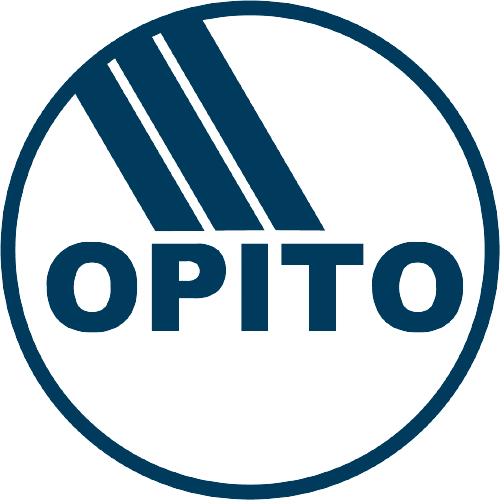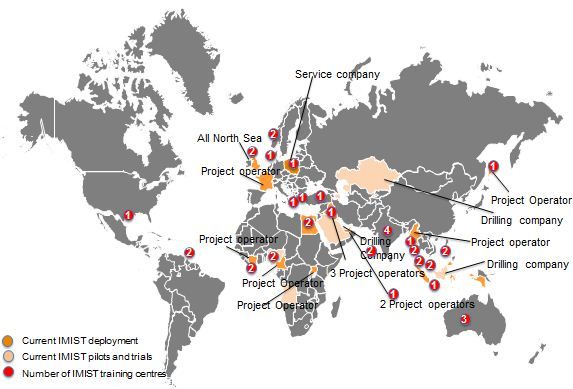NEWSPartner Focus: International Training Centre – Tunisia
20/02/2017
ITC are a HSE and Emergency Response training provider for the Oil and Gas and Maritime workforce, providing diverse range of training services, to ensure a safe and competent operating environment. “We intend to deliver training to minimise accidents worldwide, which are internationally accredited in order to spread the HSE culture among people, especially workers. Being an Atlas Knowledge partner, we think that their industry knowledge and technical expertise allow all of us to keep the content and delivery of services aligned with industry needs.” Partner Focus: Introducing iLearnAfrica
15/02/2017
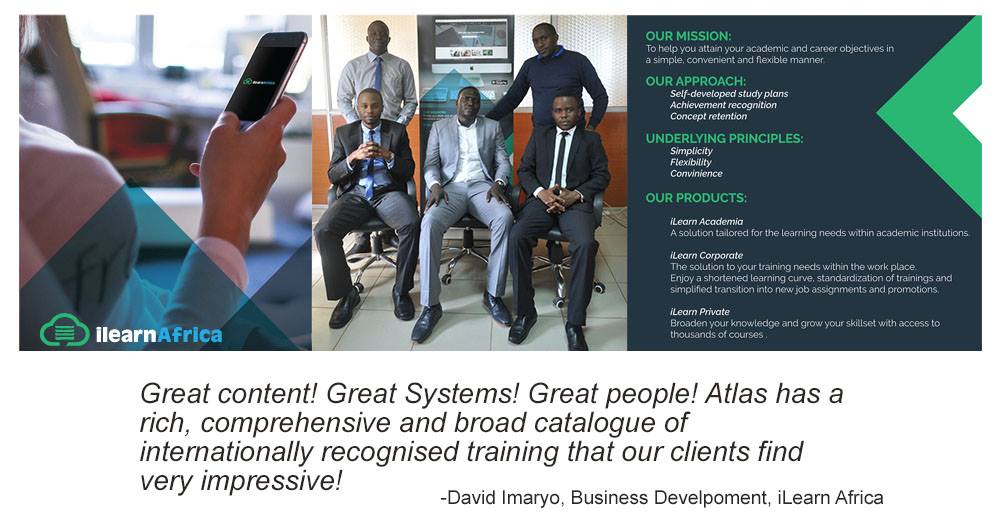
iLearn Africa aims to transform the way people experience learning and training through interactive learning material. Based in Uganda and covering the East African region, they provide their clients with end to end Digital Learning Solutions that embrace their core principles of simplicity, flexibility and convenience. “We receive first class support from a dedicated team at Atlas that are very responsive to our needs and delivers service with a smile.” Partner Focus: Introducing Nickcery, Cameroon
15/02/2017

NickCery’s Cameroon office offers training on Environmental Protection, Safety at Work to name a few as well as being an approved IMIST training centre. “The partnership with Atlas is as a dream come true as it has boosted the oil and gas business sector, building up a wealth of knowledge in the industry including a full understanding of the pressures on organisations operating in safety-critical environments”. Renewed Invigilation Centres
30/11/2016
Lesley Wallace, Atlas Knowledge Group’s Channel Partnership Manager, provides an update of renewed IMIST Invigilation Centres.
“As we reach the end of 2016 we have some exciting updates to share. After having a successful first term, 4 of our Global Partners have renewed their IMIST Invigilation status and will be continuing to promote the standard in their individual countries.
Firstly, we have P.T. Samson Tiara who specialize in providing a range of client focused safety training services and products to the offshore oil and gas, maritime, underwater, construction, mining, aviation, and general hazardous industries. Atlas met with Herdian the Operations manager recently in Kuala Lumpur, where they won OPITOs Training company of the year, a very prestigious award. A very interesting and dynamic company!
Secondly, we have Sakhalin Technical Training Centre (STTC) on Sakhalin Island. The training center was established with the aim of meeting the increased local demand for competent personnel specializing in the oil and gas industry. The STTC can also supply a wide range of technical support services to the oil and gas industry.
Al Delma Training Centre – Iraq Bilal Mahmood is a 100 percent Iraqi owned company, established in 2006. Al Delma for General Contracting & Training Services aims to contribute to the re-building of Iraq into a stronger player on the international stage. Boasting a national footprint, Al Delma prides itself on its consistent level of service and ability to offer qualified personnel, plans and accurate implementation of projects.
Advanced Industrial Solutions has state-of-the-art industrial training facilities throughout the UK. They offer a comprehensive portfolio of mandatory and optional skills, competency and safety courses endorsed by the world’s leading trade associations including IRATA, OPITO, SPRAT, MCA, IOSH, ECITB, CompEx, GWO and Renewable UK.
Atlas are very passionate about their partners all over the world and very excited to work with all four of these companies going forward. Congratulations again to you all!”
IMIST now available in Danish
28/11/2016
IMIST is now available in Danish and is currently supported in 12 languages. If you would like to trial this course in Danish please contact info@imist-online.com
KK Training becomes an IMIST Affiliate Partner
28/01/2014
OPITO IMIST Online strengthens its position in East Africa with the appointment of KK Training Centre as a new IMIST Affiliate Partner. KK Training is the most trusted and established training provided in the East African region. Their focus is on the professional growth of Local Content within the East African region, providing training that will develop a locally skilled workforce. By gaining Atlas approval to deliver OPITO IMIST online, along with complimentary e-learning courses from Atlas’s large portfolio of health and safety and technical training, Oil and Gas workers in East Africa will have their training accepted by employers all over the world. It will also reduce the burden of training costs for companies, with both new entrants and experienced workers able to undergo a full range of mandatory and voluntary health and safety courses all under one roof. Bill Lay, Director of the Oil and Gas division of KK Training said, “We are delighted to be chosen as the IMIST Affiliate Partner to offer this ground-breaking safety to the oil and gas work force in the region. “The oil giants face a shortage of specialised staff in the fields of drilling and extraction. Currently, the bulk of experts involved in exploration are being shipped in from abroad because of a skills gap in East Africa. Why should big oil firms fly in a certified welder? We should be in a position to offer this,” argues Director Lay. PROMETRIC becomes an IMIST Affiliate Partner
31/10/2013
OPITO IMIST Online strengthens its position in Côte D’Ivoire with the appointment of PROMETRIC Engineering and Inspection Services as the new IMIST Affiliate Partner. The IMIST Affiliate Programme is an exclusive partnership between Atlas and selected IMIST Invigilation Centres worldwide. The IMIST Affiliate Partner initiative was developed to support key invigilation Centres to grow and develop IMIST in specific regions. Launched in July 2013, the programme offers Approved Training Centres the opportunity to work closely with Atlas to promote and deliver IMIST to IOCs, NOCs, legislative bodies and service companies in their region. The IMIST Affiliate Programme is an exclusive partnership with Atlas and is only available to one approved IMIST Invigilation Centre in each Oil and Gas region. Over the last year IMIST has expanded rapidly with Invigilation Centres opening across West Africa, Nigeria, Ghana, Cameroon, Equatorial Guinea and Côte D’Ivoire. PROMETRIC Engineering and Inspection Services is a dynamic company primarily serving the energy, petrochemical, industrial and utilities industries. PROMETRIC are dedicated to protecting clients’ assets by providing services that keep companies operations running safely, efficiently and effectively at all times. IMIST brings, for the first time, a standardised level of basic safety training to an estimated 1.5million oil and gas workers worldwide. The training, which is being rolled out across 30 countries, assesses basic safety knowledge in nine subject areas including risk assessment, asset integrity, the use of hazardous substances, working at height and mechanical lifting, among other subjects. By gaining Atlas approval to deliver OPITO IMIST online, along with complimentary e-learning courses from Atlas’s large portfolio of health and safety and technical training, Oil and Gas workers in Côte D’Ivoire will have their training accepted by employers all over the world. It will also reduce the burden of training costs for companies, with both new entrants and experienced workers able to undergo a full range of mandatory and voluntary health and safety courses, all under one roof. Harry van der Vossen, Chief Technology Officer – Atlas, “The appointment of PROMETRIC as our Affiliate partner will support the roll out of this global minimum safety standard to the industry in Côte D’Ivoire” “IMIST is an important element of assuring a common standard of competency. Delivery of this training programme to the Oil and Gas workforce in Côte D’Ivoire is a clear move towards achieving a step-change in the health and safety culture globally and meeting the target of reducing risk and making sure workers can return home safe at the end of the day” Currently available in 11 languages, across 24 countries, IMIST Online is making a real contribution to health and safety across West Africa, which will only continue with PROMETRIC becoming an IMIST Affiliate Partner. Mohamed Nehme Managing Director of PROMETRIC said “We are delighted to be the IMIST Affiliate Partner to offer this ground-breaking safety training to the oil and gas work force in Côte D’Ivoire. IMIST is the only truly global standard that will provide a consistent level of safety knowledge to industry workers, totally transferrable for the Ivory Coast Oil and Gas workforce, whatever region they are working in. Atlas’ approval provides independent and world-wide recognition of the quality of our training facilities and the quality of our delivery.” Atlas Launches IMIST Affiliate Partnership
01/10/2013
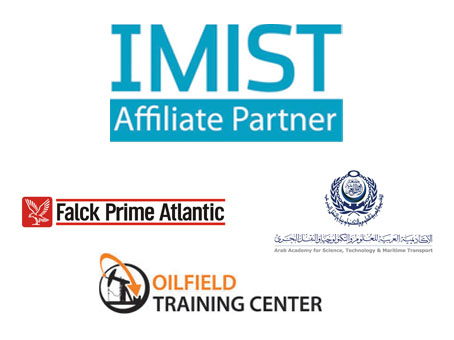
Atlas Launches IMIST Affiliate Partnership The IMIST Affiliate Programme is an exclusive partnership between Atlas and selected IMIST Invigilation Centres worldwide. The IMIST Affiliate Partner initiative was developed to support key Invigilation Centres grow and develop IMIST in specific regions. Launched in July 2013, the programme offers Approved Training Centres the opportunity to work closely with Atlas to promote and deliver IMIST to IOC’s, NOC’s, legislative bodies and service companies in their region. Stewart Buchanan, Global Operations Manager – IMIST, “The appointment of our IMIST Affiliates will support the roll out of the global minimum safety standard to the industry in North and West Africa” “IMIST is an important element of assuring a common standard of competency and delivery of this training programme to the Oil and Gas workforce in Africa is a clear move forward; towards achieving a step-change in the health and safety culture globally and meeting the target of reducing risk and making sure workers can return home safely at the end of the day” Having strengthened IMIST’s position in North and West Africa with Invigilation Centres in Egypt, Ghana, Nigeria, Cameroon, Equatorial Guinea and Cote D’Ivoire, Atlas can introduce our first IMIST Affiliate Partners as: Arab Academy The Arab Academy is a regional university for Science, Technology and Maritime Transport (AASTMT) based in Alexandria, Egypt. In recent years it has been pumping new blood into its leading figures, making use of its experienced staff and planning for its future to preserve the gains it has achieved and its status at all levels, local Arab and International. "The appointment of Maritime Safety Institute (MSI) of the Arab Academy as an IMIST Affiliate Partner in the Middle East and North Africa region, helps strengthen our position and commitment towards Health and Safety and technical training. Oil and Gas workers in the region will now be able to complete IMIST Online, an internationally recognised certificate" M: +20 12 22 12 9396, T: +20 3 5613341, E: safety@aast.edu Falck Prime Atlantic Falck Prime Atlantic has opened their first Invigilation Centre in Africa, based in Ipara, Abeokuta in Nigeria. From this newly built, world-class training centre they are training onshore and offshore workers using their portfolio of over 200 courses. Falck Training also performs analyses of safety, contingency plans and crisis management, especially in the offshore sector and for nuclear power plants. Folake Soyannwo - Business Development Manager of FPAL expressed her delight in the centre being the only IMIST Affiliate Partner in Nigeria to offer this global standard in safety training. “IMIST is a safety training that will provide a consistent level of safety knowledge to workers in the Nigerian Oil and Gas Industry and Atlas’ approval provides independent and world-wide recognition of the quality of our delivery’’. M: +234 8080789234 or, 234 8174585844, T: +234 1 460 6130 Ext: 333, E: nike.famodu@falckprimeatlantic.com Oilfield Training Center Oilfield Training Center is a purpose-built training facility based in Takoradi, Ghana with the aim of supporting the regions increasing requirement for skills improvement and increased industry awareness, following the discovery of commercially viable hydrocarbon reserves. Committed to supporting the energy industry in Ghana and the Gulf of Guinea, OTC has extensive capability in delivering competence-led training services, consultancy services and complete managed solutions on behalf of our customers. Emmanuel Yaw Buabeng, Centre Manager of Oilfield Training Centre said “We are delighted to be the IMIST Affiliate Partner to offer this ground-breaking safety training to the oil and gas work force in Ghana. IMIST is the only truly global standard that will provide a consistent level of safety knowledge to industry workers, totally transferrable for the Ghanaian Oil and Gas workforce, whatever region they are working in. Atlas’ approval provides independent and world-wide recognition of the quality of our training facilities and the quality of our delivery.” M: +233202290302, E: info@oilfield-training.com
UNITEAM first to deliver ground-breaking training initiative in Myanmar
22/08/2013
UNITEAM Offshore Training Centre (UOTC) has become the first company in Myanmar to gain approval to deliver OPITO IMIST Online, the global safety training initiative for the oil and gas industry. Myanmar is currently ranked number 48 in the world’s oil and gas reserves, with foreign investment spread across 85 oil and gas fields, both onshore and offshore, with more projects planned over the next few years as the country opens up for investment. UOTC serves the entire oil & gas industry in Myanmar, with major projects in the area like the Yadana, Yetagun, Shwe, and Zawtika offshore gas developments. The training provider’s centre is the first to meet the criteria set by learning and skills specialist Atlas to invigilate the International Minimum Industry Safety Training (IMIST) e-learning programme, a global initiative developed to drastically improve safety standards for the offshore and onshore workforce worldwide. Developed by global oil and gas training standards body OPITO International, IMIST online is delivered in partnership with Atlas via approved invigilation centres only. UOTC has the capacity to offer training to around 300 oil workers each month. With over 10,000 directly employed in the oil and gas industry, the centre is used by companies across the region. IMIST brings for the first time a standardised level of basic safety training to an estimated 1.5million oil and gas workers worldwide. The training, which is being rolled out across 30 countries, assesses basic safety knowledge in nine subject areas including risk assessment, asset integrity, the use of hazardous substances, working at height and mechanical lifting among other subjects. By gaining Atlas approval to deliver OPITO IMIST online, along with complimentary e-learning courses from Atlas’s large portfolio of health and safety and technical training, workers using the Uniteam Offshore Training Centre will have their training accepted by employers all over the world. It will also reduce the burden of training costs for companies, with both new entrants and experienced workers able to undergo a full range of mandatory and voluntary health and safety courses all under one roof. Paul van Empel, Director and Chief Instructor of UOTC, said: “We are delighted to be the first centre in Myanmar to offer this ground-breaking safety training. IMIST is the only truly global standard that will provide a consistent level of safety knowledge to industry workers, totally transferrable for our transient workforce, whatever region they are working in. Atlas’ approval provides independent and world-wide recognition of the quality of our delivery.” “Our Centre is well positioned in this region, with our modern facility based in Yangon, we provide our clients with the most up to date training in a time and cost-effective way. IMIST will ensure the workforce is best equipped to operate in the safest and most efficient way possible.” John Rowley, chief executive of Atlas said; “The accreditation of the UOTC training centre will support the roll out of this global minimum safety standard to industry in Myanmar, now investment in the oil and gas industry is opening up. “IMIST is an important element of assuring a common standard of competency and delivery of this training programme to the oil and gas workforce across Myanmar is a clear move forward towards achieving a step-change in the health and safety culture globally and meeting the target of reducing risk and making sure workers can return home safe at the end of each day.” There has been a great deal of interest from training providers all over the world who want to deliver this groundbreaking global safety standard in their centres, with 66 now registered and spread across most oil and gas regions. Using an invigilated environment ensures the online course is being delivered at the high level the industry demands. IMIST is now available in 11 languages including Arabic; American and UK English, Hindi, Bahasa Malaysian, Bahasa Indonesian, French, Thai, Vietnamese, Russian and Kazak will be available soon.
Ghana Oil Club Cocktail event at the Saddle Club in Takoradi
14/08/2013





Atlas recently sponsored the Ghana Oil Club Cocktail event at the Saddle Club in Takoradi. Stewart Buchanan, Global Operations Manager – IMIST, presented Atlas and IMIST (International Minimum Industry Safety Training) to over 90 guests including; Tullow Oil, GE Oil and Gas, Swire Pacific Offshore, Hess, Lonrho, SOS international and Baker Hughes. At the event Stewart introduced our new invigilation centre partners in Ghana; Amaja, Oilfield services (Oilfield Training Centre), Takoradi Polytechnic, and J&R Offshore services. A good evening was had by all. IMIST Online adopted in Sakhalin Island by one of the world’s biggest integrated oil and gas projects
06/06/2013
Sakhalin-2 has adopted OPITO IMIST (International Minimum Industry Safety Training) Online; the ground-breaking global training initiative delivered by Atlas for the oil and gas industry. Sakhalin Energy has committed to rolling out IMIST across the Sakhalin-2 project over the next three years; where over 2,000 staff and contractors will complete the online safety training programme. Developed by global oil and gas training standards body OPITO International and delivered in partnership with Atlas via approved test centres, IMIST brings for the first time a standardised level of basic safety training to an estimated 1.5million oil and gas workers worldwide. The training assesses basic safety knowledge in nine subject areas including risk assessment, asset integrity process safety, the use of hazardous substances, working at height and mechanical lifting among other subjects. Sakhalin Energy Investment Company Ltd. (Sakhalin Energy) is the operator of the Sakhalin-2 project under a Production Sharing Agreement with the Russian Federation. It is committed to being a premier energy supplier, recognised for its operational excellence, reliability and safety. Richard Evans, HSE General Manager of Sakhalin Energy said; “IMIST fits well with the business principles of Sakhalin Energy to support our operations and the people working within to achieve Goal Zero: No harm to people and no leaks. Our HSE management approach is based on both strict observance of Russian rules and regulations and compliance with international HSE standards. We continue to invest in the safety of our people, to help them avoid risk.” John Rowley, CEO of Atlas said; “We are delighted that Sakhalin Energy has adopted IMIST for the Sakhalin-2 project, affirming their commitment to safety. Sakhalin Energy is providing IMIST across the project's partnership organisations, demonstrating the importance to the company of all personnel being trained to a consistent level of safety awareness. “Now that IMIST is being rolled out across many oil and gas regions, industry is starting to see the benefit of this safety certificate to address the challenge of inconsistency of training across countries and projects, and multiple HSE standards within operating and service companies. With all personnel trained to the same standard in HSE, IMIST helps set a consistent level of safety practice across global operations, he concludes.” Atlas has recently translated IMIST into Russian to support the roll out of this e-learning programme on the Sakhalin-2 project. It can be tailored to meet each region’s language needs and is currently available in 11 languages including Arabic; American and UK English, Hindi, Bahasa Malaysian, Bahasa Indonesian, French, Thai, Vietnamese, Russian and Kazak will be available soon. Global presence of IMIST
18/04/2013
The IMIST global standard in safety is being used by Operators and Oilfield Service companies in 21 countries, helping all to ensure the highest of safety standards in their projects.
OPITO Safety & Competence Conference 2012
23/11/2012
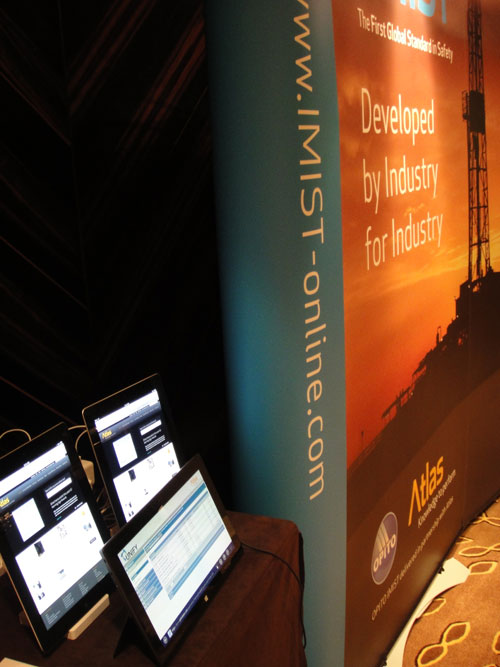
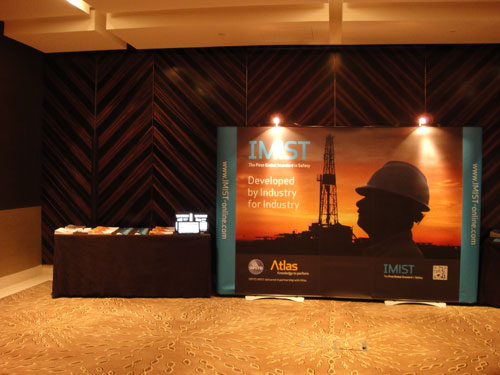
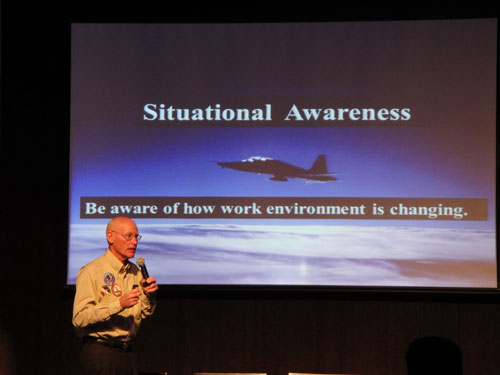
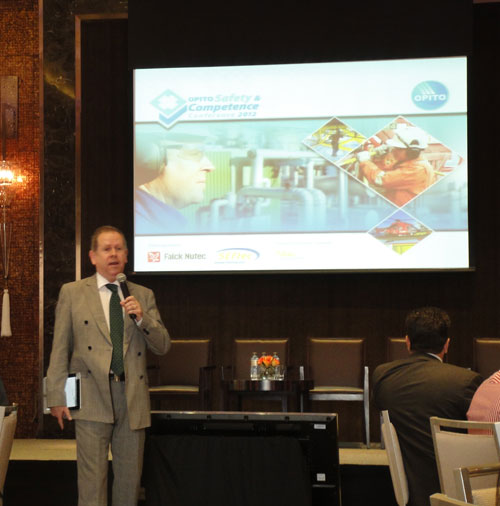
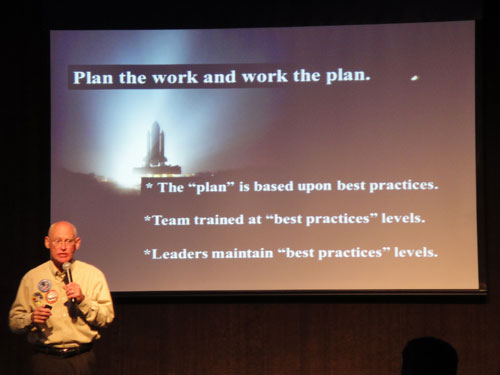
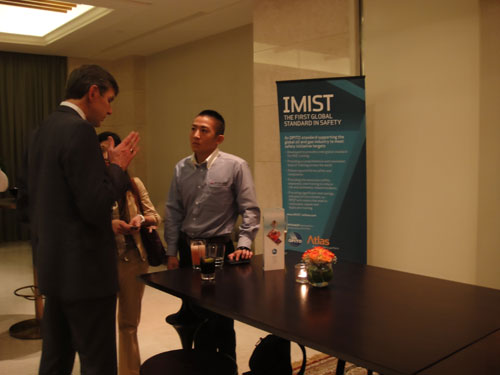
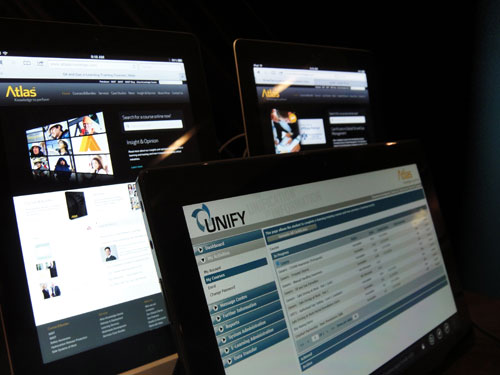
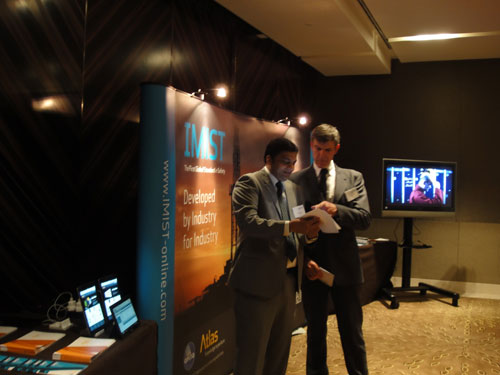
Managing the Safety Chain was the theme of the trading standard body’s third annual event which was held in the Park Hyatt Hotel, Abu Dhabi, UAE on Tuesday, 20 November 2012. Which Atlas was an event sponsor. Atlas launches IMIST in three new languages to improve safety standards in growing South East Asia energy market.
19/09/2012
Leading international skills and learning providers, Atlas, has announced three new translations of its IMIST programme, now available in nine languages. International Minimum Industry Safety Training (IMIST) is now available in Vietnamese, Thai and Indonesian, which will support the roll out of the global standard in safety across the world. IMIST has been developed by oil and gas training standards body OPITO, delivered in partnership with Atlas via e-learning. Tailored to meet each region’s specific workforce, language and geographic needs, the course assesses basic safety knowledge in nine subject areas, helping the offshore industry meet regulatory compliance obligations, producing a safer workforce and workplace. The three regions are becoming key areas within the oil and gas industry. According to the US Energy Information Administration (EIA), Vietnam ranks third in the Asia-Pacific region in proven oil reserves with the country’s oil production set to rise by around 50,000 barrels per day within the next two years. Indonesia is a leading exporter of both coal and natural gas, with the EIA stating the natural gas production in the region has increased by more than a quarter since 2005. According to Oil & Gas Thailand expo 2012, the only specialised event in the region, Thailand’s Map Ta Phut industrial complex has grown into one of the world’s biggest petrochemical hubs housing all the main refineries. The addition of three new languages to the IMIST programme will further ensure the estimated 1.5million workers employed in exploration and production activities across the world are trained to the same standard throughout the industry, as well as helping improve competency in South East Asia. With many of the industry’s largest organisations investing heavily in a region with excellent natural resources and renewable energy potential, it’s of key importance that one industry standard is set for everyone. John Rowley, CEO of Atlas said: “ South East Asia is a fast growing energy market with an abundance of natural resources currently being explored. The translation of the IMIST initiative into Vietnamese, Thai and Indonesian will support the workers and help improve competency in the region. “We want to reach as many people as we can with IMIST to improve basic safety knowledge, not only with new workers but with experienced people in the industry, so that no matter where they are in the world, a worker can be sure that their fellow colleagues are trained to the same level. “As IMIST continues to be translated into new languages and rolled out in more countries, the oil and gas industry can strive upon the highest standard of safety and competency.” Originally developed for the English speaking market, IMIST has been translated into Hindi, Arabic, Bahasa Malay, French and now Vietnamese, Thai and Indonesian. Having recently been adopted by LUKOIL, one of the biggest Russian oil business groups, IMIST is to be rolled out to its E&P workers in Iraq with the goal of ensuring the highest safety standards in the county. For more information please view Atlas’ IMIST videos on Atlas Knowledge TV or visit www.atlasknowledge.com Clearing the MIST around Offshore Safety
17/09/2012
A SPOTLIGHT HAS been turned on the Oil and Gas Industry in recent months, both in terms of its safety record and the competency of the offshore workforce. On one hand, this has been tough on the industry’s reputation and potentially damaging to our ability to attract new recruits. On the other, it has driven home the fact that the offshore industry operates in some of the harshest, most hostile and therefore hazardous environments for workers anywhere in the world, and has seen a renewed desire to address the safety and competency issue. Ours is a truly global industry and the workforce is highly mobile so having a global approach to ensuring offshore safety could bring untold benefits both for individual employees and the industry as a whole. By implementing effective safety and risk management programmes, along with developing the workforce, competency in safety across the organisation has become a focus for major oil and gas companies around the globe. Individual companies have made huge efforts to improve safety and there is no doubting the commitment by many independent and multinational players. In some regions, pan industry safety initiatives have demonstrated considerable success. However, basic safety knowledge and awareness around the world remain a worrying concern. The delivery and content of basic safety training varies dramatically from region to region and lacks consistency across the industry. We consider it to be the fundamental right of every offshore worker to have the confidence that the person sitting next to him in the helicopter or working on the drill floor has been trained to the same standards. That way no-one’s safety would be compromised. Adopting common standards and engaging the essential support to apply them uniformly across the industry is a significant challenge. But it is one on which we should not be looking to compromise. First StepOPITO is the skills body which ensures safety and competency in the worldwide Oil and Gas Industry. We are a unique, not-for-profit organisation, wholly owned by the industry, and committed to developing and sustaining a safe, skilled and competent workforce, now and in the future. We also work towards improving industry safety standards by identifying and meeting the core demands of the global Oil and Gas Industry. This is achieved by working in collaboration with a well established network of industry employers, learning and training providers, education and academia, and partnership organisations. OPITO has taken the first step towards meeting the challenge of having common global standards with the creation of International Minimum Industry Safety Training (IMIST). Launched in the Middle East in July 2011, and now being rolled out across 30 countries worldwide over the next two years, IMIST will ensure workers have the safety knowledge and training to understand and avoid hazards. IMIST can be applied to the current workforce and all new entrants to the industry. The course assesses basic safety knowledge across nine subject areas: Introduction to the Hazardous Environment; Working Safely; Understanding the Risk Assessment Process; Tasks that Require a Permit to Work; Personal Responsibility in Maintaining Asset Integrity; Using Manual Handling Techniques Every Day; Controlling the Use of Hazardous Substances; Knowledge and Processes of Working at Height; and Being Aware of Mechanical Lifting Activities. It brings, for the first time, a standardised level of basic safety training to an estimated 1.5million people employed in exploration and production activities around the globe. We know that every oil and gas province is different; has its own structure and set of challenges to manage. Far from being a ‘one size fits all’ solution, IMIST meets each region’s specific workforce, language and geographic needs. Delivered in partnership with international learning and skills provider Atlas via e-learning, it is also flexible enough to cater to areas where internet connectivity or poor accessibility to training facilities is an issue. Why Now?With the demand for energy rising all the time, the pressure to increase reservoir yields, and a workforce of a very diverse cultural mix and behaviours working with complex chemicals and machinery, the industry is challenged in managing complex risks each day. In areas such as the Middle East, the biggest challenge is the growing multicultural workforce due to the rate of expansion, and there is a real need to ensure that training on behavioural safety is appropriately embedded for both experienced and new workers. Indeed research has shown recruitment activity in the sector is currently the most active since early 2009, with the Middle East, and in particular the UAE, reaching new record levels. This situation is being replicated in key energy hubs around the globe as demand for energy continues to rise. In line with this uptake in activity, the Middle East among others has recently started to take a harder line on health, safety and environmental legislation. The Abu Dhabi National Oil Company (ADNOC), for example, continuously works to promote environmental regulation for the Oil and Gas Industry in Abu Dhabi. The company and its group companies aspire to have a health and safety performance that is exemplary in the Middle East and Africa. The industry, as a whole, however is very high profile and has high profile stakeholders. HSE, therefore, has been put very high up on the corporate agenda. HSE is also a key priority when winning contracts, expanding existing projects or working with international partners, with the trend shifting to HSE being the responsibility of every manager and employee, from top to bottom across organisations. While IMIST is not mandatory, the benefits of having a common global standard for basic safety training will go some way towards improving offshore safety. OPITO has hosted a series of briefings in Abu Dhabi, Doha, Kuala Lumpur, East Malaysia and Houston to outline what IMIST is, how it can help improve safety and how, by streamlining training efforts, it can generate savings for companies in terms of both training time commitment and investment. The feedback we have had from NOCs and IOCs attending these briefings is overwhelmingly positive and it is clear there is a desire in the industry to tackle this issue. Global StandardOPITO standards are already synonymous with industry safety. IMIST is the latest in a portfolio of training and competence standards, produced and agreed by the Oil and Gas Industry, which cover a variety of offshore emergency response duties and occupational roles. BOSIET (Basic Offshore Safety Induction and Emergency Training) for example, is now well recognised around the world with well over 100,000 workers in 30 countries trained to that standard per annum. Recent incidents in the South China Seas and the North Sea, involving helicopters ditching, revealed that the emergency response training was directly responsible for the way in which the workers responded to the incident. Ultimately the training ensured their survival. Essentially, where BOSIET is all about travelling to work safely and responding effectively to alarms, IMIST is all about working safely in the workplace when you get there. Already in the UK, MIST has brought a consistent approach to basic safety training where every person on board now has confidence that their fellow worker has the same level of safely skills and knowledge as they have. It has also greatly rationalised the myriad of induction programmes applied by specific employers. It is quickly becoming an essential part of offshore training with the majority of UK employers having implementation plans in place. These two standards combined and applied to every offshore worker around the world would give greater confidence to offshore workers in the industry, and they would help avoid further incidents and tragedies. There is a huge prize to be won if the industry accepts the challenge and really wants to do something about safety. Not only would lives be saved, but efficiencies could be made and costs reduced. OPITO will continue to push hard for the industry to adopt common, global safety and competency standards. While at times it is an uphill struggle, it is one that will be worth the effort because it could prevent future incidents and potentially save lives. Ian Laing – Managing Director, OPITO International
PT Samson Tiara first in Indonesia
08/08/2012
PT Samson Tiara, the leading provider of safety training services in Indonesia, has announced today that it has received approval from Atlas, international learning and skills specialist, to provide the OPITO international minimum industry safety training (IMIST) online program in Indonesia. PT Samson Tiara will be the first to offer this online global safety training program in Indonesia. Developed by global oil and gas training standards body OPITO International, IMIST brings for the first time a standardised level of basic safety training to an estimated 1.5 million oil and gas workers worldwide. The training assesses basic safety knowledge in nine subject areas including risk assessment, asset integrity, the use of hazardous substances, working at height and mechanical lifting among other subjects. Mr. Shawn Truesdell, marketing director for PT Samson Tiara comments, "We are very pleased to be the first to bring OPITO IMIST Online to Indonesia and we see a huge potential in its use to improve the overall safety of the oil and gas work force in Indonesia. Its effectiveness has already been measurably seen overseas and its adoption rate internationally is increasing, we look forward to seeing this success replicated locally." Ian Noronha, account director for Atlas, Asia Pacific, said, "We are delighted to see the adoption of IMIST Online in Indonesia. By gaining Atlas approval to deliver the course, workers using the PT Samson Tiara training centre will have their IMIST training accepted by employers all over the world. This is a significant step forward for the oil and gas workforce in Indonesia in terms of creating a safe, sustainable and profitable oil and gas industry for the country. "It is also a major milestone in the adoption of a common industry standard for basic safety and competency in oil and gas around the world. The support which has been shown for this initiative is evident in the rapidly increasing footprint of training centre's which now spans across all four corners of the globe and is testament to the industry's desire to improve safety at all levels, continues Noronha." World’s largest privately owned oil and gas company adopts OPITO IMIST ONLINE
23/07/2012
LUKOIL, a major international vertically-integrated oil & gas company and one of the biggest Russian oil business groups has adopted OPITO IMIST (International Minimum Industry Safety Training) Online; the groundbreaking new global training standard for the oil and gas industry. LUKOIL is currently implementing oil & gas exploration and production (E&P) projects across 12 countries and IMIST Online has just been adopted for roll out to their E&P workers in Iraq, with the goal of ensuring the highest of safety standards in this country.
Developed by global oil and gas training standards body OPITO International and delivered in partnership with Atlas via approved invigilation centres, IMIST brings for the first time a standardised level of basic safety training to an estimated 1.5million oil and gas workers worldwide. The training assesses basic safety knowledge in nine subject areas including risk assessment, asset integrity, the use of hazardous substances, working at height and mechanical lifting among other subjects. Anton Gakhov, Head of Learning and Development LUKOIL, comments: “LUKOIL has been working closely with Atlas to identify an appropriate training curriculum for our workforce in Iraq. OPITO IMIST Online forms a major part of our blended learning programme to ensure we are fully compliant and performing safely in operations.” Iain Laing, Managing Director OPITO International, said: “IMIST is an important element of assuring a consistent standard of competency across the global oil and gas industry. LUKOIL’s commitment is a clear step forward towards achieving a step-change in the health and safety culture across the industry.” John Rowley, CEO Atlas said, “We are delighted that LUKOIL has adopted IMIST Online for their Iraq operations. This affirms their commitment to safety, helping to set the standard for safe operations in this country. The industry takes health and safety very seriously and puts a lot of time and money behind constant improvements. IMIST Online has the potential to not only help individual businesses improve their own efficiency, but also the industry overall by enhancing the skills set of the transient workforce, making a significant contribution towards meeting one of the prime strategic needs of the modern-day industry: to take every opportunity to underpin health and safety performance and minimise accidents.” IMIST Online, which was launched in the Middle East in July 2011, is being rolled out across 30 countries worldwide including Asia, Africa and North America over the next two years. It is delivered via e-learning and can be tailored to meet each region’s language needs. It is currently available in 6 languages including Arabic; American and UK English, Hindi and Bahasa Malaysian. Additional languages, including Bahasa Indonesian, French, Thai and Vietnamese will be available soon. OPITO says over half a million offshore oil and gas workers now trained
20/06/2012
Oil and gas skills body OPITO says more than half a million offshore oil and gas workers in 40 countries have been trained to OPITO safety and competency standards. The industry-funded body has unveiled a series of statistics which demonstrate the organisation's transformation over the last six years and its new global position as the safety standard of choice. Since 2010, 81,000 workers have completed the OPITO-driven MIST (Minimum Industry Safety Training) - the most radical change to UK offshore training for over 20 years. OPITO's Petroleum Open Learning, which provides low cost, flexible learning courses to increase technical training and knowledge and improve performance in the workplace, is now exported to 30 countries. David Doig, group chief executive said: "Since establishing OPITO International in 2009 to achieve our goal of developing common global safety and competency standards, we have established offices in Dubai, Kuala Lumpur and Houston. Our role internationally is to take the approach adopted in the UK and tailor it for each oil and gas province so that the industry's mobile global workforce is trained to the same high standards, improving competency and safety in oil and gas around the world and ultimately saving lives. "Our international journey is hugely successful with a 300% increase in the take-up of our standards and significant milestones such as the signing of a landmark agreement with the Iraq Ministry for Oil to help the war-torn country develop the skills and training necessary to exploit its hydrocarbon resources. OPITO is providing guidance and support to help the country build a world-class learning infrastructure so that the people of Iraq can obtain the skills, knowledge and qualifications needed to access jobs in the country's oil and gas industry for now and in the long-term future." At a national level OPITO reveals that 1,360 apprentices have now been through or are presently participating in the industry's Modern Apprenticeship scheme in which the industry has now invested £120million since 2000. The OPITO scheme is recognised by Government as an exemplar as it currently achieves over 90% completion rates - the UK average for completion of apprenticeship schemes is only 65%. Meanwhile OPITO has run two successful pilot Transformation Training Programmes to bring workers from other industry sectors into oil and gas. One of these in Fife is tackling skills gaps, and the other, helping RAF personnel in Kinloss and Lossiemouth switch to a career in oil and gas, is to be rolled out in the future. Mr Doig added: "Bringing almost 1,500 new people into the UK industry underlines the return on the industry's investment in skills and training through OPITO. However, the extraordinarily high levels of North Sea activity are yet again exacerbating our underlying skills shortages. We simply do not have enough people with the skills that the industry demands and we must ramp up our activity to ensure that we build a robust and sustasinable pipeline of skilled people coming into the industry. "Today's figures from OPITO demonstrate that we are making substantial headway but we must secure wider industry support and engagement to increase the success of our initiatives. Many oil and gas companies have their own skills programmes but through OPITO we can offer cost-effective and collaborative schemes that deliver a greater return on investment for industry."
Delegates in Aberdeen trial new groundbreaking safety initiative
26/04/2012
The latest IMIST (International Minimum Industry Safety Training) information lunch took place at Atlas’ global headquarters in Aberdeen on the 26th April. The team at Atlas were delighted to welcome representatives from leading oil & gas companies and training providers who have already helped set the safety standard in the UKCS through MIST UK. Delegates were given the opportunity to trial the first global standard in safety for the Oil & Gas Industry and contribute to an open discussion on IMIST. Atlas was also delighted to welcome Larraine Boorman, the new Managing Director of OPITO who gave an update on the future of MIST UK. IMIST was developed to provide a new global standard for Health and Safety training, which will provide a comprehensive and consistent level of training across the world and enhance work force safety and compliance. IMIST- the new standard in safety training - is being rolled out across 30 countries worldwide throughout Asia, Africa and the North America over the next two years. If you would like to find out when the next IMIST event in your region takes place, contact info@IMIST-Online.com.
Growing the global footprint of IMIST
08/03/2012
Atlas has expanded the global footprint of facilities capable of delivering the groundbreaking new global training initiative for the oil and gas industry with the approval of the first centre’s in northern Europe, demonstrating the growing number of Oil and Gas regions around the world who have now facilities to invigilate the International Minimum Industry Safety Training (IMIST) - the first global standard in safety. It brings the total number of invigilation centre’s approved to deliver IMIST around the world to 28, with facilities spanning Australia, Thailand, Singapore and the Philippines as well as the United Arab Emirates, Qatar, North America, Nigeria, Norway and Russia among others. Developed by global oil and gas training standards body OPITO International, IMIST brings for the first time a standardised level of basic safety training to an estimated 1.5million oil and gas workers worldwide. The training assesses basic safety knowledge in nine subject areas including risk assessment, asset integrity, the use of hazardous substances, working at height and mechanical lifting among other subjects. IMIST online, which was launched in the Middle East in July 2011, is delivered in partnership with Atlas via approved invigilation centres only. Companies can use any of the approved Invigilation Centres worldwide to train their employees with the confidence that it will be delivered professionally and accepted by employers all over the world. It will also reduce the burden of training costs for companies with both new entrants and experienced workers able to undergo a full range of mandatory and voluntary health and safety courses under one roof. IMIST is being rolled out across 30 countries worldwide throughout Asia, Africa and the North America over the next two years. It will be delivered via e-learning and tailored to meet each region’s specific workforce, language and geographic needs.
ATEC first to deliver groundbreaking training initiative in North America
01/03/2012
Atec Training and Certification Services has become the first company in North America to gain approval to deliver a groundbreaking new global training initiative for the oil and gas industry in this region. The training provider’s Houston centre is the first to meet the stringent criteria set by learning and skills specialist Atlas to invigilate the International Minimum Industry Safety Training (IMIST) e-learning programme, a global initiative developed to drastically improve safety standards for the offshore workforce worldwide. Developed by global oil and gas training standards body OPITO International, IMIST online is delivered in partnership with Atlas via approved invigilation centres only. The Atec Training Centre has the capacity to offer training to around 500 oil workers each month. With an estimated 244,000 people in the North America currently employed in exploration and production activities, the centre is ready to be used by companies across the region. IMIST brings for the first time a standardised level of basic safety training to an estimated 1.5million oil and gas workers worldwide. The training, which was launched in the Middle East in July and is being rolled out across 30 countries, assesses basic safety knowledge in nine subject areas including risk assessment, asset integrity, the use of hazardous substances, working at height and mechanical lifting among other subjects. By gaining Atlas approval to deliver the course, workers using the Atec Training Centre will have their IMIST training accepted by employers all over the world. It will also reduce the burden of training costs for companies with both new entrants and experienced workers able to undergo a full range of mandatory and voluntary health and safety courses under one roof. Tommy Sutherland, Managing Director of Atec, said: “We are delighted to be the first centre in the US to offer this groundbreaking safety training. IMIST is the only truly global standard that will provide a consistent level of safety knowledge to industry workers, totally transferrable for our transient workforce, whatever region they are working in. Atlas’ approval provides independent and world-wide recognition of the quality of our delivery. “Our Centre is well positioned in this region, with our facility in Houston which can provide companies operating in North America with a time and cost-effective way of accessing the new IMIST course, ensuring the workforce is best equipped to operate in the safest and most efficient way possible.” John Rowley, chief executive of Atlas said the accreditation was a good step towards promoting the roll out of this global minimum safety standard to industry in this region. “IMIST is an important element of assuring a common standard of competency and this accreditation is a clear step forward towards achieving a step-change in the health and safety culture globally and meeting the target of reducing risk and making sure workers can return home safe at the end of each day.” He added: “There has been a great deal of interest from training providers all over the world who want to deliver this groundbreaking global safety standard in their centres, with 26 now registered and spread across most oil and gas regions. Using an invigilated environment ensures the online course is being delivered at the high level the industry demands and we are delighted that Atec has become the first centre to gain approval in this key region.” IMIST is now available in 5 languages - Arabic, Bahasa Malaysian, UK and American English, Hindi and coming soon in Thai, French and Bahasa Indonesian.
The Challenge of a Common Standard
21/02/2012
THE appetite for greater consistency and a common global standard for basic safety training in the Oil and Gas Industry is growing. Since OPITO, the global oil and gas training standards body, working in partnership with specialist learning and knowledge provider Atlas, launched International Minimum Industry Safety Training (IMIST) in July 2011, a common theme has emerged across companies of all shapes and sizes when it comes to tackling the issue of basic health and safety training for their workforce. National and international oil companies alike cite the need for a consistent level of globally recognised training. Interestingly the challenges of introducing and delivering this type of training – no matter the scale of the company involved or in which corner of the globe they operate – also remain broadly the same. More than 500 demonstrations of IMIST are currently underway across Europe, the Middle East, Asia Pacific and the US. OPITO IMIST brings, for the first time, a standardised level of basic safety training to an estimated 1.5million people employed in exploration and production activities worldwide. Delivered online through an approved e-learning programme, IMIST has been developed by industry for industry to provide a comprehensive and consistent level of training across the world to enhance workforce safety and compliance. Designed to enable existing workers to demonstrate their knowledge and awareness of the basic safety standards necessary to reduce risks and incidents, the course contains nine modules ranging from an introduction to the hazardous environment, working safely and understanding the risk assessment process to tasks that require a permit to work, personal responsibility in maintaining asset integrity and the knowledge and processes of working at height. Atlas and OPITO have hosted a series of briefings across Middle East, Asia Pacific and the US which have seen hundreds of delegates trial the programme. A further 100 trials are currently being undertaken by oil and gas companies around the globe. “The questions that we are hearing are by and large the same, no matter which geographic region businesses operate in,” said Andy Imrie, Executive Director at Atlas. The need for a consistent level of basic safety training is globally recognised, the challenge really lies around delivering IMIST to a diverse cross section of nationalities, abilities and locations whilst ensuring the same high standard is met. “Delivering IMIST online through e-learning meets this challenge by offering industry a consistent approach to the delivery of this HSE programme, it ensures that the training standard can be met across multiple geographies and cultures. “This method of training is perfectly suited to large, dispersed organisations as it accommodates multiple trainees with a wide range of learning styles, preferences and needs.” EngagementFundamental to the success of any large-scale training programme is the need to engage the audience – whatever their level of experience. “One of the key questions we are asked is how one course can adequately assess the needs of workers with several years’ knowledge and experience under their belts and those who are relatively new to the industry,” explained Imrie. “We developed the technology underpinning IMIST to allow workers with a solid understanding of basic safety to progress very quickly through the course. While the time required to complete it is reduced, the content and standard of competency required doesn’t change.” Trainees initially work through a bank of 61 pre-assessment questions which are mapped to the OPITO IMIST standard. This process identifies knowledge gaps and builds a user specific course from the entire IMIST content, based only on these gaps. Each element of content will be followed by a set of assessment questions and as such the course will re-build itself until the trainee has correctly answered all the learning objectives. Summative questions are also aligned to course learning objectives. “Critically, this approach has created an e-learning environment that is more likely to keep the participant engaged, informed and interested in a key area of training. It has reduced what could have been up to 13 hours of classroom training to two to three hours of interesting and relevant e-learning,” said Imrie. Navigation and LiteracyWhere training needs to be delivered to thousands of people at hundreds of locations across scores of different cultures, how can you ensure comprehension of what is required across a workforce with varied literacy levels? “Understanding is key. There is little point to introducing a common standard if it is not accessible to the whole of the oil and gas population,” said Imrie. “National Oil Companies in particular have issues with literacy standards among their workforce so IMIST has been designed in a visual format so it is easy to navigate and is adaptable to those with low computer skills. “We have also embarked on a programme of translations. With an estimated 221 million Arabic speakers in 57 different countries worldwide, this was the first logical starting point in terms of translating IMIST from English and of increasing accessibility by bringing it to a wider pool of oil and gas workers.” Additional translations have now been carried out and IMIST is now available in Bahasa Malay, Hindi, UK and American English. Atlas expects to have Thai, Bahasa Indonesian, French, Spanish, and Portuguese versions coming out soon. Transferability and ConsistencyOil and gas has one of the largest transient workforces of any industry in the world. The task of educating and ensuring behavioural safety ownership in this type of workforce is a challenging and difficult one. “A global standard provides companies with the assurance they need that the people they have working for them, whether directly or via contractor, meet the same basic level of safety and competency to avoid risk. “IMIST can only be undertaken in an invigilated environment at approved training centres so there is the safety net of knowing the required standard is being met. The footprint of approved centres currently stretches from the UAE, Qatar and Nigeria to Thailand, Singapore, Australia, Norway, the US and Russia and continues to grow. InvestmentSafety is paramount across the oil and gas community with companies investing millions of dollars every year in a multitude of training courses. Among the frequently asked questions is why organisations should commit to IMIST if their own internal training meets a higher standard? “A great many organisations have their own induction programmes or ‘golden rules’ when it comes to safety, however these can be site specific and not easily transferable. IMIST was designed to complement rather than replace these initiatives and provide the industry with a common best-practice standard for basic safety training recognised by every employer around the globe. This removes the need for operating staff and contractors to continually repeat company training programmes depending on which site or platform they are posted. We have heard that some workers in a year might go through a manual handling course four or five times, with a huge cost of time and resource to industry and also with varying levels of quality of the course. “The price is fixed at $99 (USD) per licence no matter where in the world you are and this includes OPITO accreditation fee and registration onto the Vantage system. In terms of return on investment however, the benefits are immeasurable.” IMIST will be rolled out across 30 countries worldwide over the next 18 months with a programme of industry briefings scheduled for the US, Australia and Africa amongst others. “This is very much an ongoing process with feedback playing an integral part in ensuring delivery of IMIST is fit for purpose and meets the needs of the industry,” added Imrie.
OPITO’s IMIST Set To Become Safety Standard For Gulf of Mexico and Globally
14/02/2012
Houston – Feb. 14, 2012 – No longer a best practice, but rather a moral imperative, global oil and gas standards body, OPITO, sees a continuing demand within the Gulf of Mexico oil and gas community to establish a global safety standard. For the first time, OPITO, with the oil and gas industry, has developed an online global standardized level of basic safety training which will reach an estimated 1.5 million people employed in exploration and production activities of oil and gas worldwide. Atlas, the leading international learning and skills provider, has worked in partnership with OPITO to develop the online technology and deliver IMIST globally. IMIST online is being rolled out across 30 countries worldwide including Abu Dhabi, Iraq, Malaysia and the United States over the next two years. Together, OPITO and Atlas have successfully trained more than 50,000 oil and gas workers in the UKCS since 2009 to the MIST United Kingdom standard. “Our objective for IMIST is to increase the level of safety awareness, reduce operational risk and the number of safety related incidents,” said Albert Skiba, OPITO’s vice president of the Gulf of Mexico. “IMIST represents a major step forward by the oil and gas industry to introduce a global safety standard relevant to USA workers as well as those working in the Middle East, Persian Gulf, West Africa and Southeast Asia .” OPITO contends that training people consistently to the same level will bring significant safety improvements in the Gulf of Mexico and internationally. Additionally IMIST will allow greater flexibility in overseas deployment as it becomes the standard for safety training on a global basis with no need to duplicate and repeat training. IMIST online is an e-learning program, which ensures, in a consistent and cost-effective manner, that anyone working in the oil and gas industry has the appropriate training, skills, and competency to minimize safety hazards and risks. The course, now available in four languages assesses basic safety knowledge in nine subject areas including risk assessment, asset integrity, the use of hazardous substances, working at height and mechanical lifting among other subjects. John Rowley, chief executive officer of Atlas said: “A global standard provides companies with the assurance they need that the people they have working for them, whether directly or via contractor, meet the same basic level of safety and competency to avoid risk.” Rowley added, “We developed the technology underpinning IMIST to allow workers with a solid understanding of basic safety to progress very quickly through the course. While the time required completing it is reduced, the content and standard of competency required does not change. This approach has created an e-learning environment that is more likely to keep the participant engaged, informed and interested in a key area of training, raising the bar on safety standards in the worldwide oil and gas industry.” A not-for-profit industry body, OPITO is committed to improving safety and reducing risk for people, assets and companies in one of the most hazardous working environments. The organization works with governments, national oil companies, multi-nationals and contractors to provide independent advice and guidance on effective management of workforce skills development, emergency response, occupational standards, qualifications and quality assurance of training delivery. Its world class training network spans 32 countries with more than 200,000 people each year training to OPITO’s best-practice standards. The U.S. briefing of IMIST will take place, Valentine’s Day, Feb. 14, 2012, at Hotel ZaZa in Houston . Around 50 senior representatives from the leading national and international oil companies will attend the briefing to hear how the IMIST standard will transform the industry by ensuring workers have a common standard of safety knowledge and training to understand and avoid hazards and risks.
Atlas Appoints New Account Director for Asia Pacific Region as Business Continues to Expand
01/12/2011

International learning and skills specialist Atlas has strengthened its presence in Asia Pacific with the appointment of Ian Noronha as new Account Director to spearhead sales in the region. Noronha will drive growth with new and existing clients and oversee the company’s work with key multinational and state-owned companies in all safety-critical industries across Asia Pacific. Based in Atlas’ representative office in Kuala Lumpur, Noronha will also work with the organisation’s UK operation to develop new products and services tailored to meet the needs of the regional market. Atlas has been active in Asia Pacific for more than five years, recently winning large contracts with ConocoPhillips in Australia to support their LNG activity and also establishing a network of Invigilation Centres to deliver OPITO’s International Minimum Industry Safety Training (IMIST) across the region. Atlas’ chief executive officer John Rowley said: “Asia Pacific is an important market for us and we have established a solid platform from which to grow. We are fortunate to have someone of Ian’s calibre join the team and are confident his experience will help us to develop new opportunities in the region for our expansion across the business internationally.” Noronha’s appointment further strengthens the company’s drive to become the global leader in innovative learning, compliance and competency workforce solutions. Atlas provides services to more than 750 companies worldwide and closed out last year reporting significant, multi-million dollar wins—most notably ExxonMobil. In the last two years, employee numbers have nearly doubled to 75 personnel and exports account for more than 45 percent of sales. “It’s an exciting time to be joining Atlas at such an important stage in its journey. Atlas is an energetic and innovative company with great vision and passion, not just for its people, its clients and its business but for the safety critical industries it works in,” said Noronha. “Most importantly, it has the right people, the right skills and the drive and enthusiasm to succeed, all essential components in achieving its global aspirations”, he continues. A graduate of the University of Flinders, South Australia, Noronha holds a bachelor of science with a major in computing and a master in business administration from the University of Hull. Noronha brings to this post valuable experience of the training market in this region, having spent more than 13 years in this sector working as Country Director (SEA) for the City & Guilds and Business Relationship Manager for Prometric B.V. based in Kuala Lumpur.
IMIST’s global footprint grows as first training facility opens in Iraq
01/12/2011
International learning and skills specialist Atlas has expanded the global footprint of facilities capable of delivering a groundbreaking new global training initiative for the oil and gas industry with the approval of the first centre in Iraq. The accreditation of the Al Delma facility in Basra City demonstrates Iraq’s commitment to developing its energy industry and creating a workforce trained to the globally recognised basic safety standard, IMIST online It brings the total number of invigilation centre’s approved to deliver International Minimum Industry Safety Training (IMIST) around the world to 16, with facilities spanning Australia, Thailand, Singapore and the Philippines as well as the United Arab Emirates, Qatar, Nigeria and Russia among others. The Al Delma centre will be capable of delivering the programme to up to 250 people every day. Bilal Mahmood, CEO of Al Delma said: “Long-term underinvestment in the development of our oil and gas personnel has meant considerable training is needed if we are to accomplish the goal of a safe and skilled workforce for the future. “We have built our reputation on being quick, smart and reliable and we are delighted to be the first to gain approval to deliver this new international training and be a model to others in the country as we are one of the biggest training centres.” Developed by global oil and gas training standards body OPITO International, IMIST brings for the first time a standardised level of basic safety training to an estimated 1.5million oil and gas workers worldwide. The training assesses basic safety knowledge in nine subject areas including risk assessment, asset integrity, the use of hazardous substances, working at height and mechanical lifting among other subjects. IMIST online, which was launched in the Middle East in July 2011, is delivered in partnership with Atlas via approved invigilation centres only. By gaining Atlas approval to deliver the course, workers using the Al Delma centre will have their IMIST training accepted by employers all over the world. It will also reduce the burden of training costs for companies with both new entrants and experienced workers able to undergo a full range of mandatory and voluntary health and safety courses under one roof. Atlas chief executive John Rowley said: “This is a significant step forward for the oil and gas workforce in Iraq in terms of creating a safe, sustainable and profitable oil and gas industry for the country. “It is also a major milestone in the adoption of a common industry standard for basic safety and competency in oil and gas around the world. The support which has been shown for this initiative is evident in the rapidly increasing footprint of centres which now spans across all four corners of the globe and is testament to the industry’s desire to improve safety at all levels.” IMIST is being rolled out across 30 countries worldwide throughout Asia, Africa and the North America over the next two years. It will be delivered via e-learning and tailored to meet each region’s specific workforce, language and geographic needs.
IMIST is now available in 5 languages
30/11/2011
IMIST is now available in Arabic, Malaysian, UK and American English languages and will be available soon in Hindi. Please view our IMIST videos in Arabic, Malay or English on Atlas Knowledge TV to find out more about the online International Minimum Industry Safety Training. If you would like to trial a licence for any of these language versions, please email info@IMIST-online.com for instant access to the IMIST course. For easy access to all the latest news, events and updates regarding the first global standard in safety, please follow IMIST blog.
Research unveiled during OPITO Safety Conference
23/11/2011
Atlas was among the high profile audience who took part in OPITO’s flagship Safety and Competency Conference (OSCC) in Abu Dhabi in November. The event, which Atlas sponsored, attracted registrations from around 300 delegates spanning the international and national oil and gas community with attendees from as far afield as Aberdeen, Azerbaijan and Bazra to Cairo, Japan, Indonesia and Texas travelling to the second annual conference. OSCC 2011 focused on the theme of Competence vs Compliance – addressing how the industry ensures a competent workforce that significantly improves safety rather than ticking the necessary boxes. Research commissioned by OPITO and conducted by the Robert Gordon University revealed that an improved focus on competence is required if the oil and gas industry is to deliver a step-change in safety skills and performance with over 65% of respondents believing that the current focus on compliance in companies could lead to complacency. The findings reveal a clear realisation among oil and gas companies around the world that being compliant is not enough to improve workforce safety and skills. OSCC saw Lord Cullen, author of the Cullen Report into the Piper Alpha tragedy, deliver the keynote address on the view of the inquirer into major incidents. Atlas also showcased International Minimum Industry Safety Standards (IMIST) during the event.
IMIST promo videos now available in Arabic and Malay
22/11/2011
Atlas has launched a series of promotional videos which are now available to view on Atlas Knowledge TV in Arabic and Malay. Originally developed in UK and American English, the film provides a short and informative video on how the International Minimum Industry Training Standard (IMIST) initiative was developed to drastically improve safety standards for the global offshore workforce. It will ensure 1.5million workers engaged in exploration and production activities worldwide have the necessary safety knowledge and training to understand and avoid hazards and risks. The video is due to be translated into Hindi early in the New Year, supporting the global roll out of IMIST across 30 countries over the next 18 months.
Atlas presented IMIST at the OPITO Safety and Competence Conference (OSCC) 2011
22/11/2011
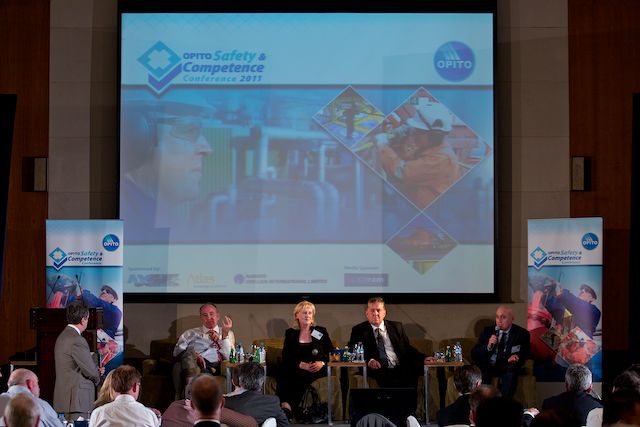

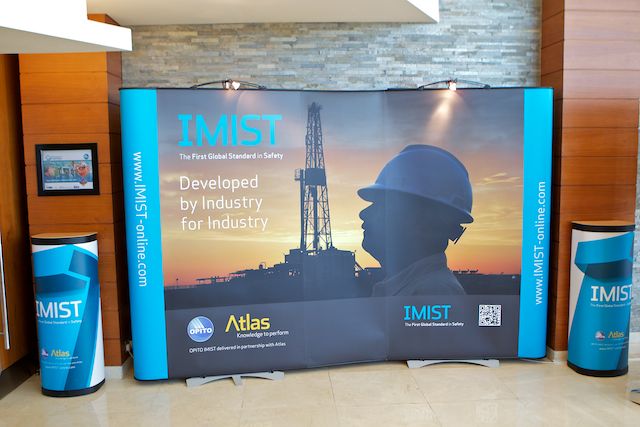

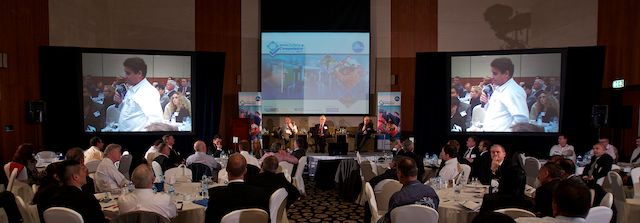




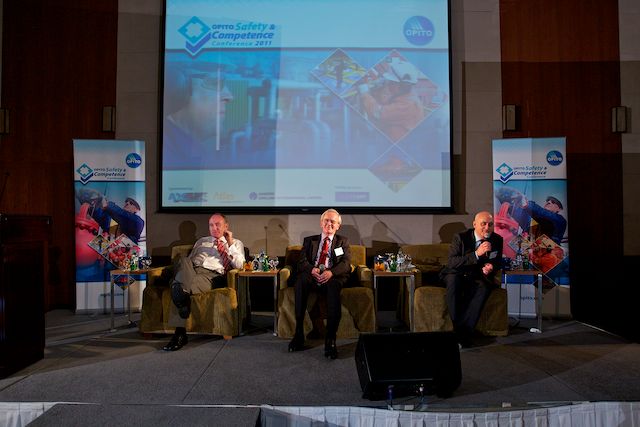
On Tuesday, 22 November 2011 at the Rotana Hotel, Yas Island over 300 delegates responsible for safety, competence and workforce development within their organisation attended OPITO’s second safety conference in Abu Dhabi. This year’s focus was on global safety and competency in the oil and gas industry, providing a forum for improving standards of safety and competency in the global workplace. Atlas was delighted to be a main sponsor of this event and took the opportunity to present IMIST Online at an exhibition stand in the foyer of the hotel. Following the conference Atlas held its annual golf outing at the Yas Island Golf course where 20 representatives from Atlas’ client and partner training organisation’s attended and enjoyed a round of golf on this first class course followed by lunch and prize giving.
QISC first to deliver groundbreaking training initiative in Qatar - November 2011
01/11/2011
Qatar’s leading training provider, QISC has become the first company in Qatar to gain approval to deliver a groundbreaking new global training initiative for the oil and gas industry. Qatar International Safety Centre (QISC), which provides innovative and tailored training solutions, has successfully met the criteria, set by International learning and skills specialist Atlas to invigilate the International Minimum Industry Safety Training (IMIST) e-learning programme, a global initiative developed to drastically improve safety standards for the offshore workforce worldwide. Developed by global oil and gas training standards body OPITO International, IMIST online is delivered in partnership with Atlas via approved invigilation centres only. QISC, has two state of the art facilities in Qatar custom-built to train up to 1,130 oil and gas workers each month. The company boasts the highest number of OPITO accreditations in the world delivered by trained experts accredited with the highest level of certifications. The centre trains a multi-skilled workforce from around the world, in various languages including, Arabic, English, Hindi, and Indian. IMIST brings for the first time a standardised level of basic safety training to an estimated 1.5million oil and gas workers worldwide. The training, which was launched in the Middle East in July, assesses basic safety knowledge in nine subject areas including risk assessment, asset integrity, the use of hazardous substances, working at height and mechanical lifting among other subjects. By gaining Atlas approval to deliver the course, workers using the QISC centre will have their IMIST training accepted by employers all over the world. It will also reduce the burden of training costs for companies with both new entrants and experienced workers able to undergo a full range of mandatory and voluntary health and safety courses under one roof. Andy Reid, business development manager at QISC, said: “As Qatar’s leading training provider, it was important for us to deliver the latest ground breaking safety standard to hit the market. Delivering IMIST courses helps us continue our goal of offering the highest quality training courses to the industry. Atlas’ approval provides independent and world-wide recognition of the quality of our delivery and we are delighted to be the first company in Qatar to meet the stringent criteria. “As we continue to be innovative and proactive to meet our customers’ needs we welcome any new training that contributes to the health and safety of our customers throughout the industry.” OPITO group chief executive David Doig said: “IMIST is an important element of assuring a common standard of competency and this accreditation is a clear step forward towards achieving a step-change in the health and safety culture across the industry.” Atlas chief executive John Rowley added: “We are delighted that QISC has become the first centre to gain approval in this key region. Using an invigilated environment to deliver IMIST ensures the online course is being delivered at the high level. There has been a great deal of interest from training providers who want to deliver this groundbreaking global safety standard in their centres around the world.” IMIST is being rolled out across 30 countries worldwide throughout Asia, Africa and the North America over the next two years. It will be delivered via e-learning and tailored to meet each region’s specific workforce, language and geographic needs.
Global safety initiative IMIST launched in Arabic - October 2011
01/10/2011
A LANDMARK training initiative developed to drastically improve safety standards for the global offshore workforce is now available in Arabic. The International Minimum Industry Training Standard (IMIST) will ensure 1.5million workers engaged in exploration and production activities worldwide have the necessary safety knowledge and training to understand and avoid hazards and risks. It is being rolled out across 30 countries worldwide throughout Asia, Africa and the United States over the next two years. A second translation, into Bahasa Malay, is due to be released in November 2011. IMIST has been developed by oil and gas training standards body OPITO and will be applied to every member of the current workforce and all new entrants to the industry. Delivered in partnership with Atlas via e-learning and tailored to meet each region’s specific workforce, language and geographic needs, the course assesses basic safety knowledge in nine subject areas including risk assessment, asset integrity, the use of hazardous substances, working at height and mechanical lifting among other subjects. John Rowley, chief executive officer of Atlas said: “Originally developed in UK and American English, IMIST provides the platform for increasing the performance of the national workforce whilst ensuring a standardised playing field in terms of safety and competency. “With an estimated 221 million Arabic speakers in 57 different countries worldwide, this move is the first step towards increasing its accessibility, bringing the benefits of IMIST to wider pool of oil and gas workers.”
Falck first to deliver groundbreaking training initiative in the Middle East - October 2011
01/10/2011
Falck Safety Services has become the first company in the Middle East to gain approval to deliver a groundbreaking new global training initiative for the oil and gas industry. The safety training provider’s Abu Dhabi centre is the first to meet the stringent criteria set by learning and skills specialist Atlas to invigilate the International Minimum Industry Safety Training (IMIST) e-learning programme, a global initiative developed to drastically improve safety standards for the offshore workforce worldwide. Developed by global oil and gas training standards body OPITO International, IMIST online is delivered in partnership with Atlas via approved invigilation centres only. The Falck centre, in Musaffah industrial city, has the capacity to offer training to around 1,300 oil workers each month. With an estimated 460,000 people in the Middle East currently employed in exploration and production activities, the centre is expected to be used by companies across the region. IMIST brings for the first time a standardised level of basic safety training to an estimated 1.5million oil and gas workers worldwide. The training, which was launched in the Middle East in July, assesses basic safety knowledge in nine subject areas including risk assessment, asset integrity, the use of hazardous substances, working at height and mechanical lifting among other subjects. By gaining Atlas approval to deliver the course, workers using the Falck centre will have their IMIST training accepted by employers all over the world. It will also reduce the burden of training costs for companies with both new entrants and experienced workers able to undergo a full range of mandatory and voluntary health and safety courses under one roof. Tahnoon Karim, UAE business development manager at Falck Safety Services, said: “As the largest offshore training safety provider, it was important for us to be the first centre to offer this groundbreaking training. Atlas’ approval provides independent and world-wide recognition of the quality of our delivery and we are delighted to be the first company to have met the criteria and achieved this honour. “A key regional centre, the facility in Abu Dhabi will provide companies operating across the Middle East with a time and cost-effective way of accessing the new IMIST course and a wide range of other industry health and safety training, ensuring the workforce is best equipped to operate in the safest and most efficient way possible.” OPITO group chief executive David Doig said the accreditation was the first step towards raising the bar on safety and workforce competency globally. “IMIST is an important element of assuring a common standard of competency and this accreditation is a clear step forward towards achieving a step-change in the health and safety culture of the Middle East and meeting the target of reducing risk and making sure workers can return home safe at the end of each day.” Atlas chief executive John Rowley added: “There has been a great deal of interest from training providers who want to deliver this groundbreaking global safety standard in their centres around the world. Using an invigilated environment ensures the online course is being delivered at the high level the industry demands and we are delighted that Falck has become the first centre to gain approval in this key region.” IMIST is being rolled out across 30 countries worldwide throughout Asia, Africa and the North America over the next two years. It will be delivered via e-learning and tailored to meet each region’s specific workforce, language and geographic needs.
Groundbreaking IMIST safety initiative unveiled in Qatar - October 2011
01/10/2011
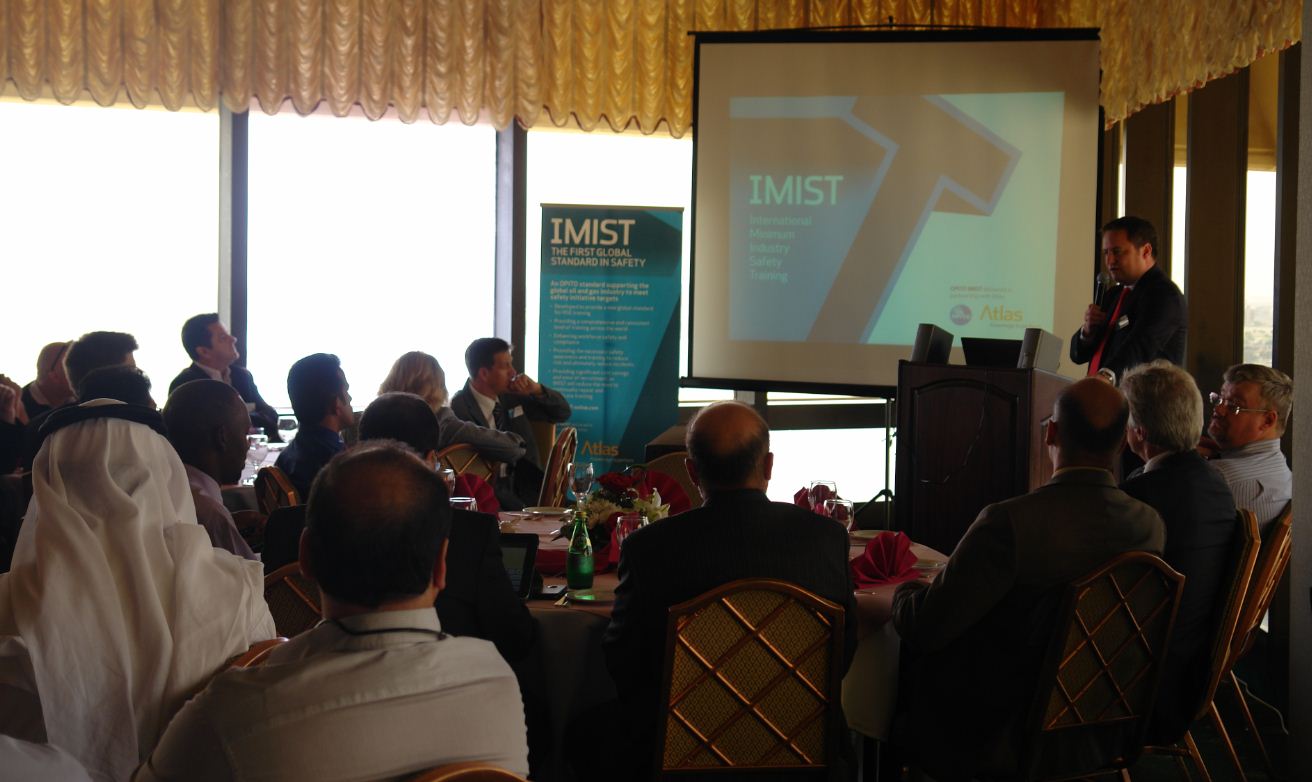






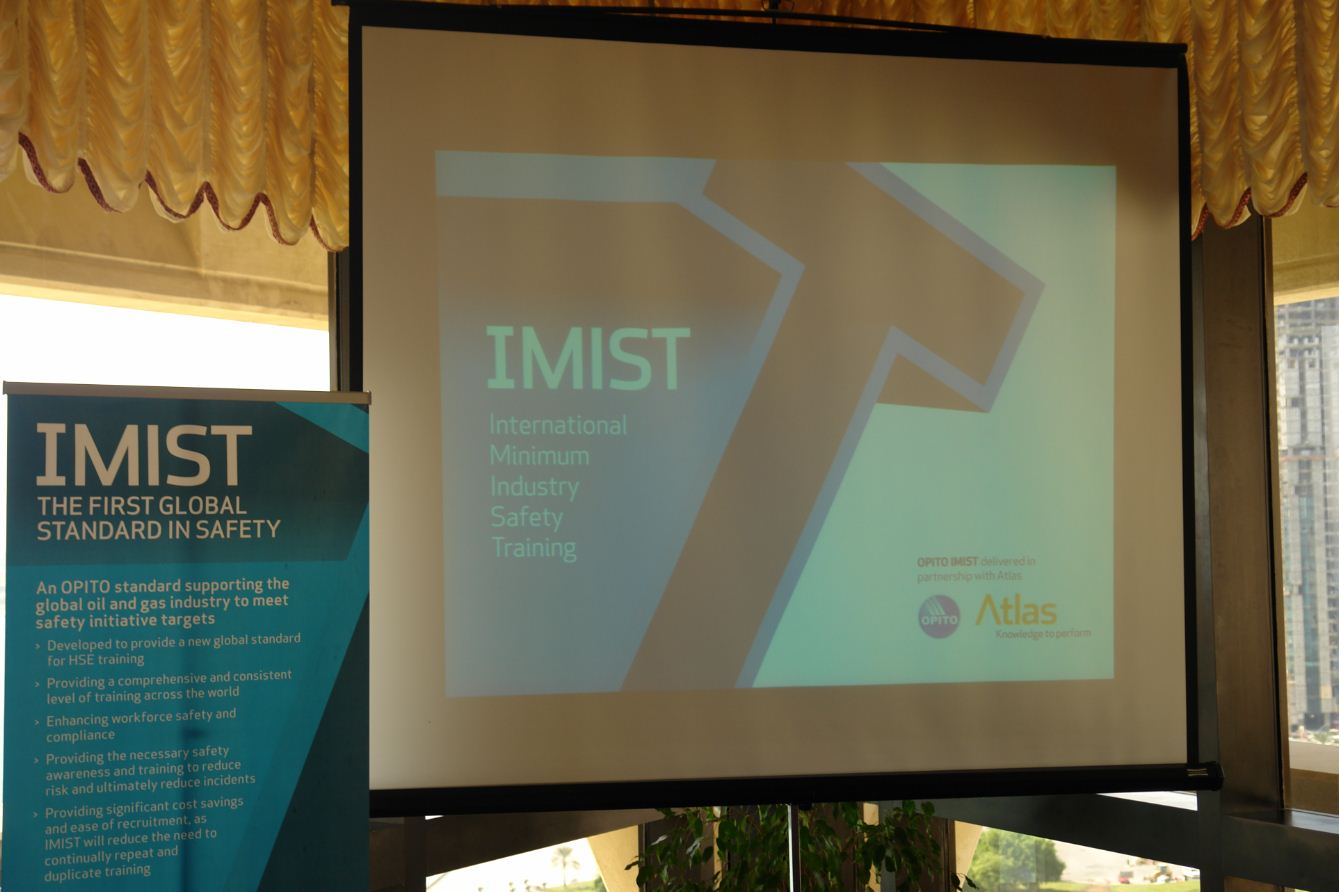

THE global roll-out of the International Minimum Industry Training Standard (IMIST) has reached Qatar. OIL and gas workers in Doha have been some of the first to access a groundbreaking new global training initiative developed to drastically improve safety standards for the global offshore workforce. Around 40 senior representatives from the leading national and international oil companies and training providers in the region attended a briefing at the Sheraton Doha Resort and Convention on October 26th to hear how the International Minimum Industry Training Standard (IMIST) will ensure workers have the necessary safety knowledge and training to understand and avoid hazards and risks. IMIST has been developed by global oil and gas training standards body OPITO International. It brings, for the first time, a standardised level of basic safety training to an estimated 1.5million people employed in exploration and production activities worldwide. Of those, around 460,000 are based in the Middle East. Delivered in partnership with international learning and skills provider Atlas via e-learning, IMIST online will be tailored to meet each region’s specific workforce, language and geographic needs. Ian Laing, managing director of OPITO said: “We were delighted with the attendance at the event in Doha and the positive feedback received from those in the industry. It was an extremely interactive and informative session, revealing that there is a real interest in standardising the safety of this region.” Andy Imrie, director of Atlas said: “IMIST provides the platform for increasing the performance of the national workforce whilst ensuring a standardised playing field in terms of safety and competency. The course is now available in Arabic language, as well as UK and American English and soon to be released in Bahasa Malay. “It has the potential to not only help individual businesses improve their own efficiency, but also the industry overall by enhancing the skills set of the transient workforce, making a significant contribution towards the creation of a safer workplace for all and providing a solid foundation from which to grow further in the future.” IMIST will be rolled out across 30 countries worldwide throughout Asia, Africa and the United States over the next two years.
First global standard in oil and gas safety training launches in Malaysia - September 2011
01/09/2011

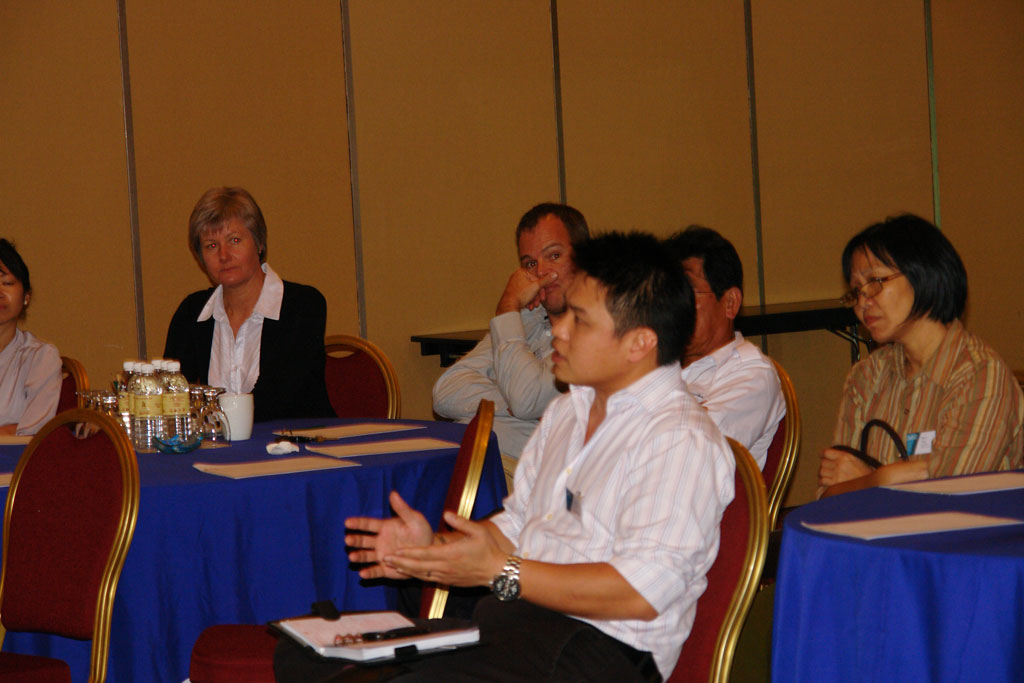
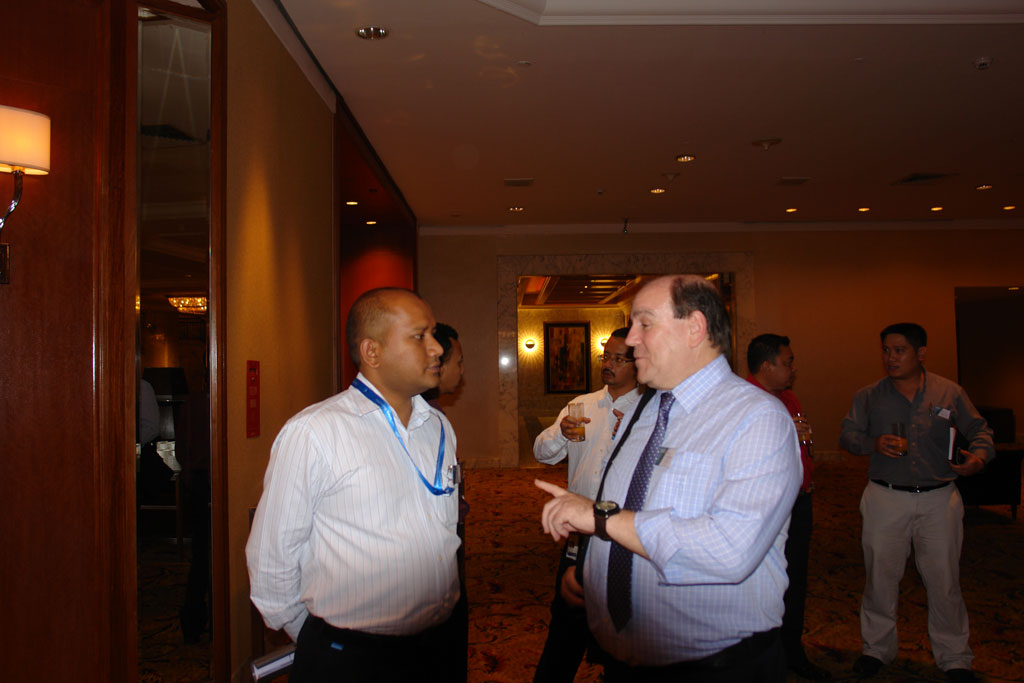
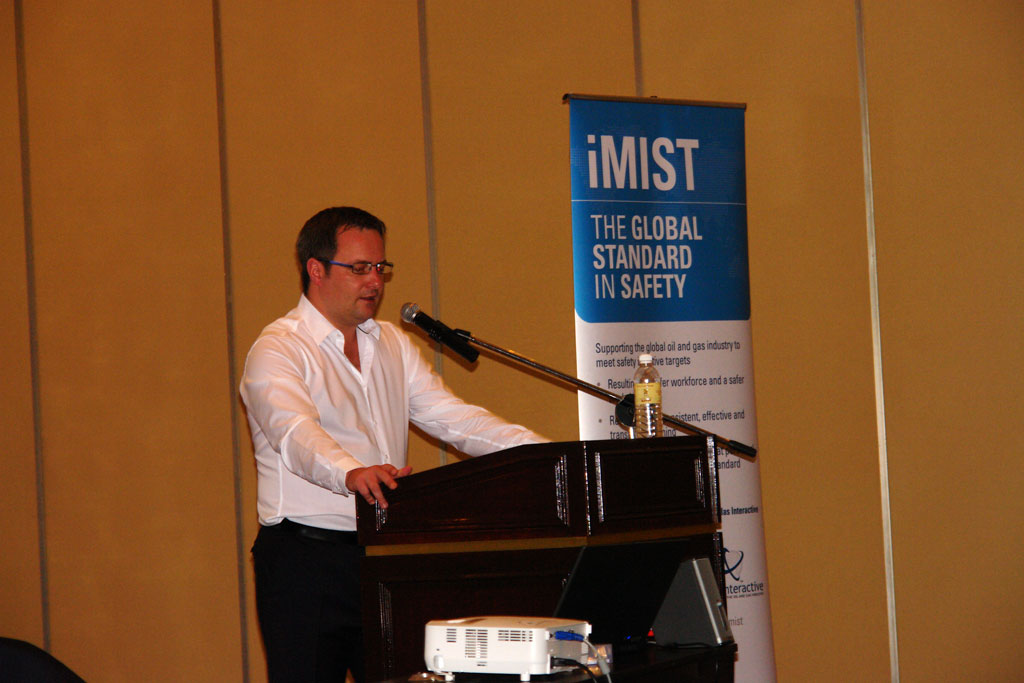
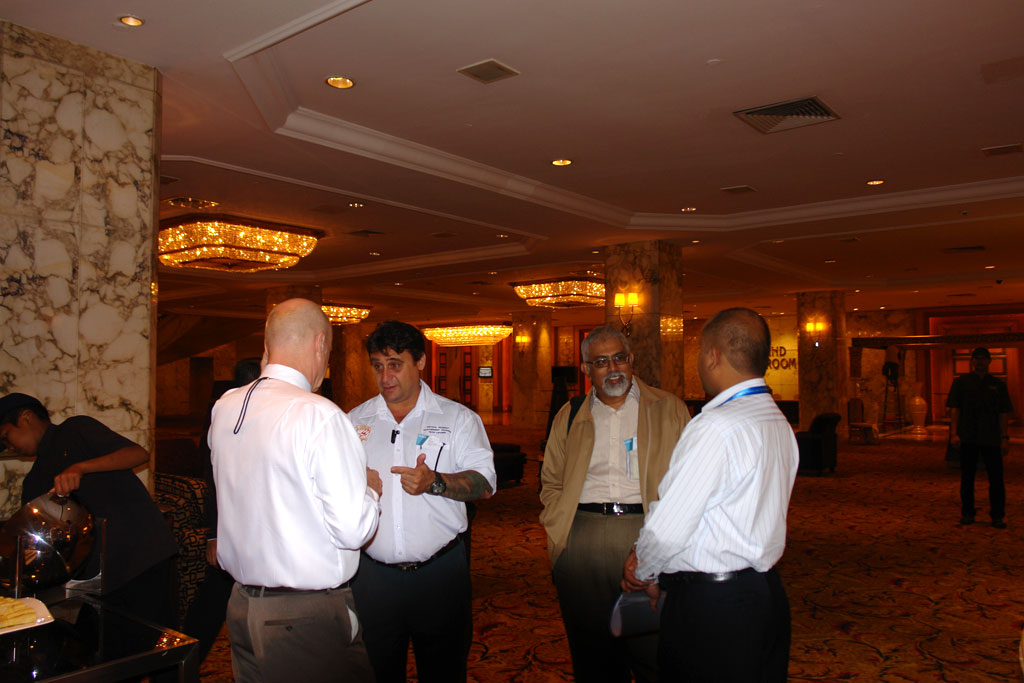
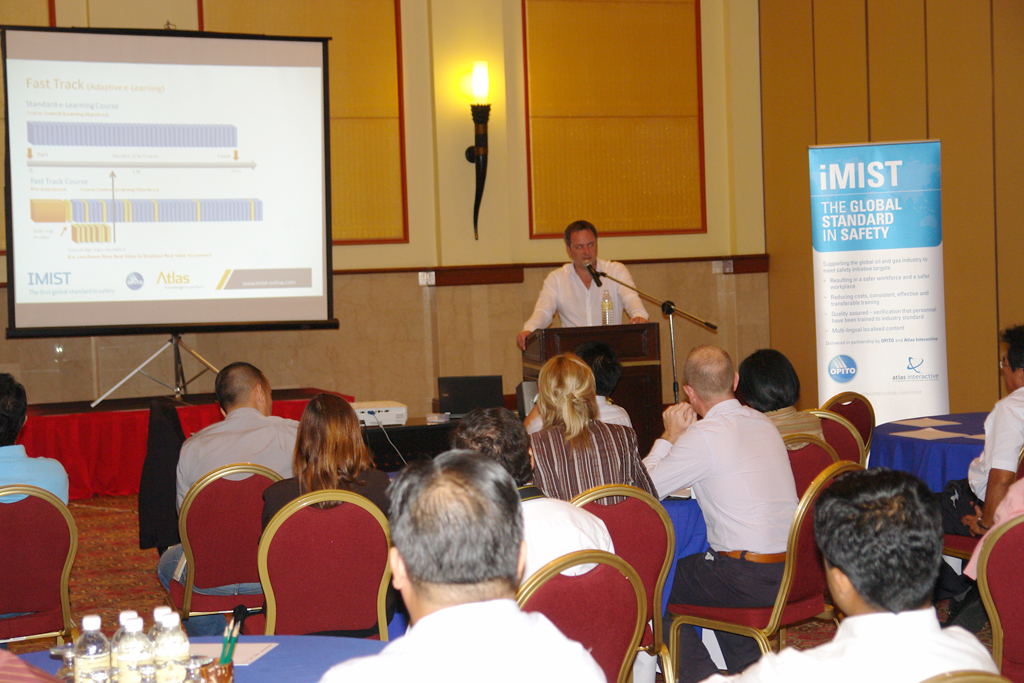
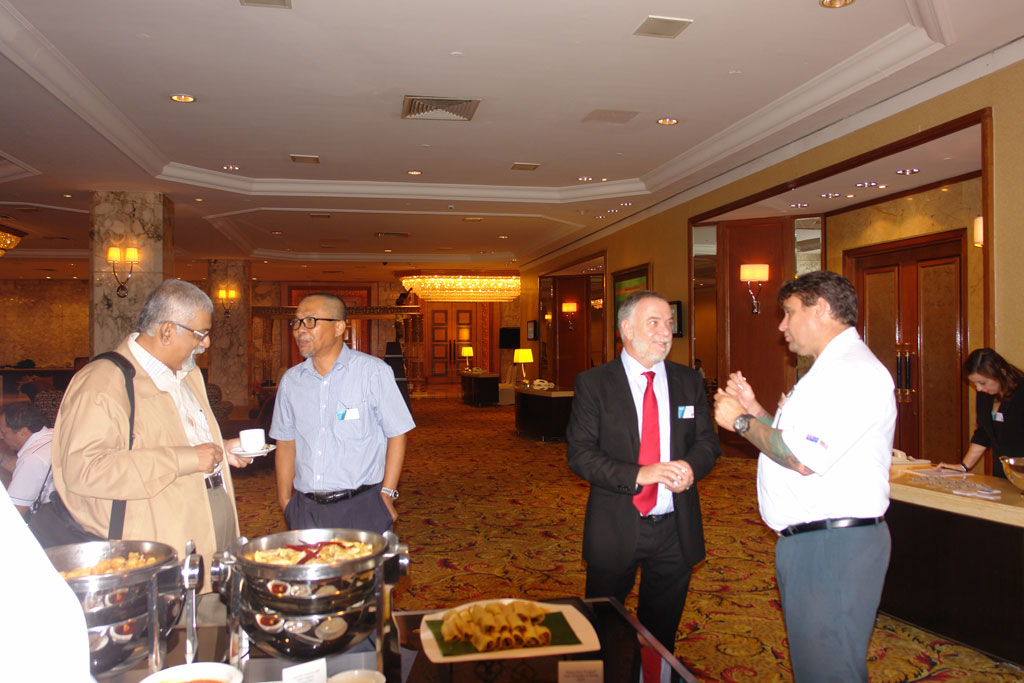
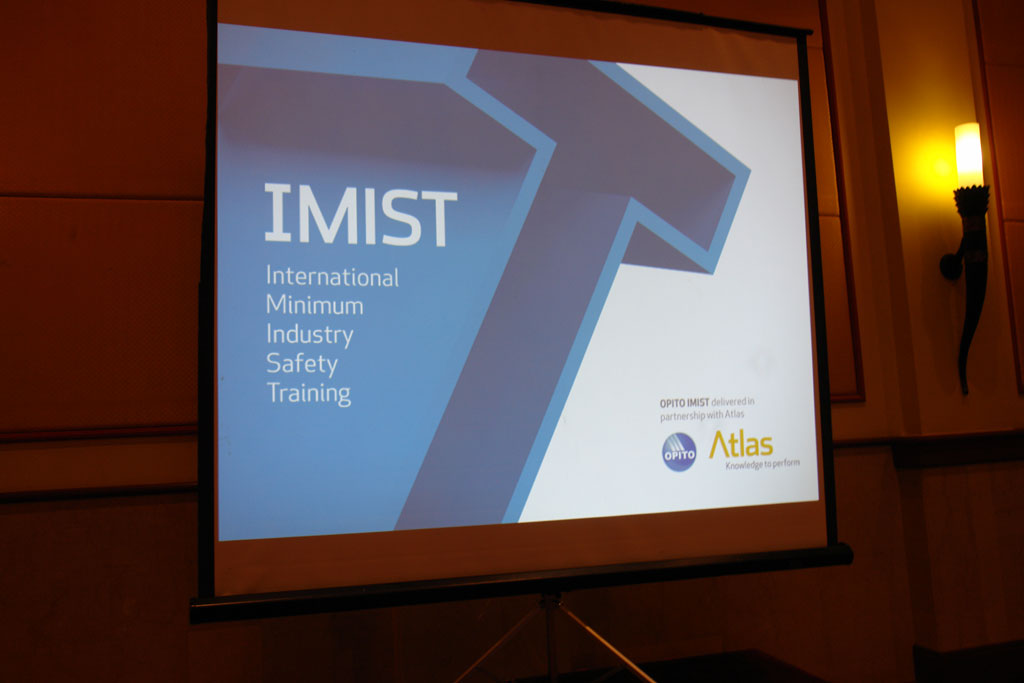
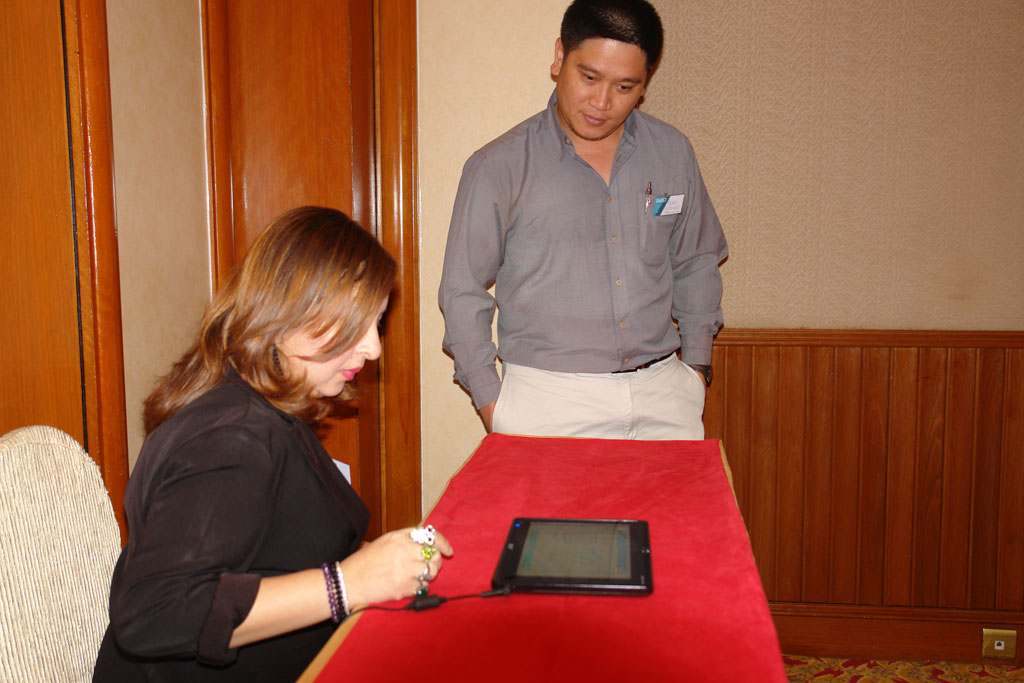
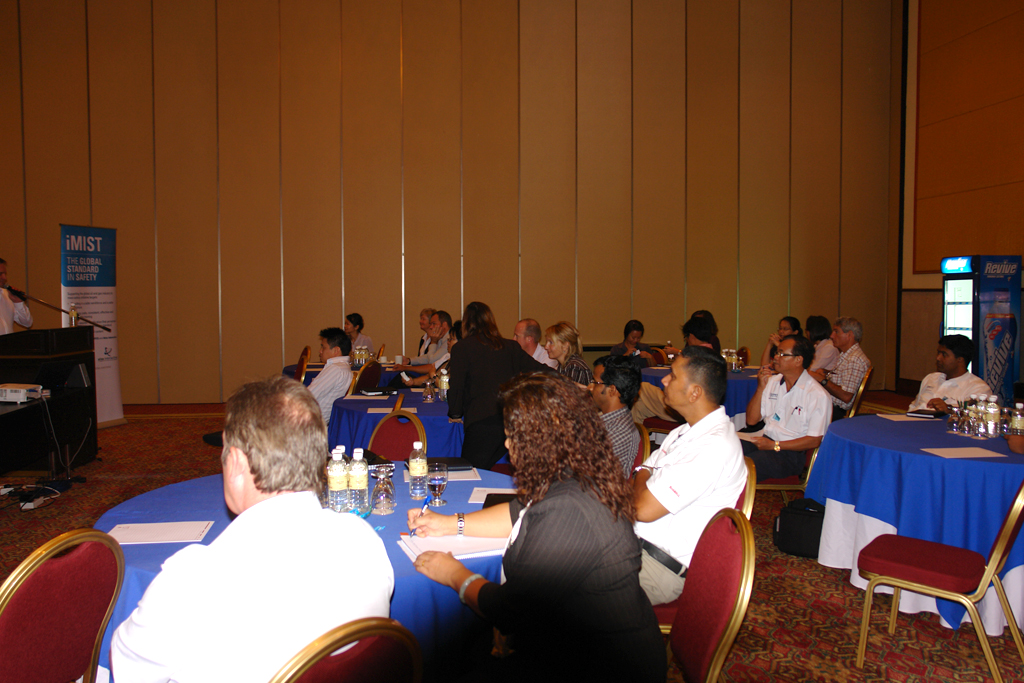

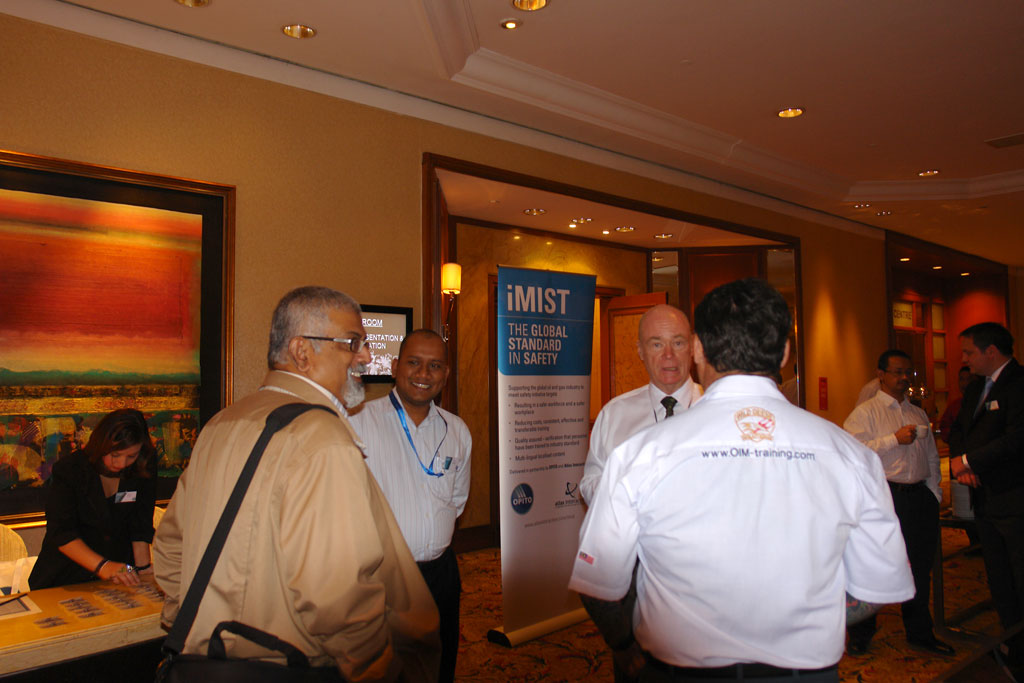
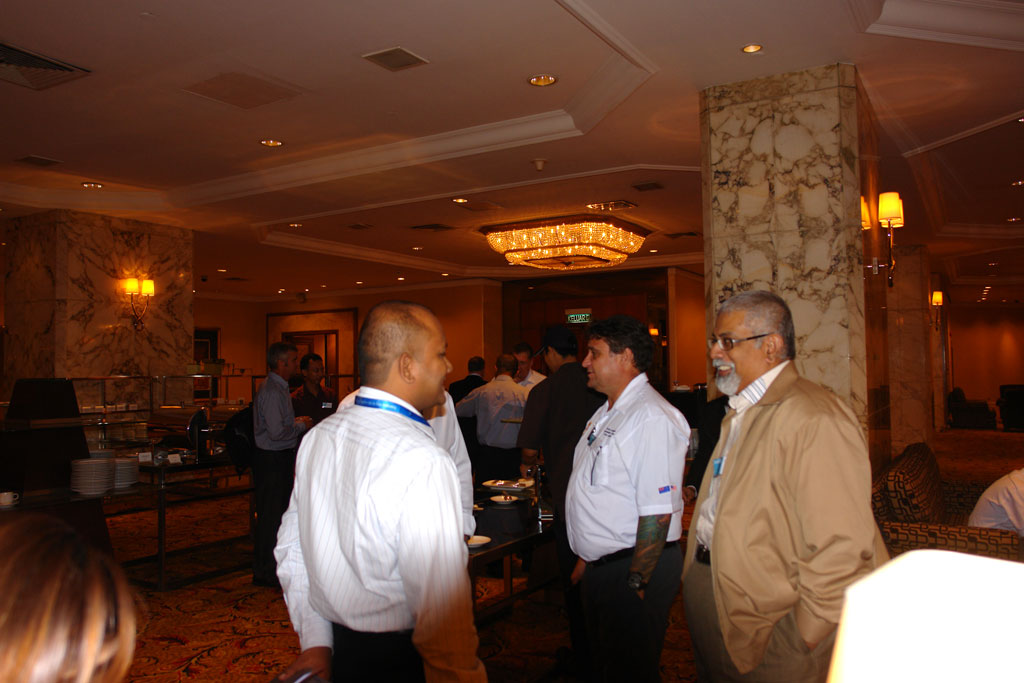
OIL and gas companies in Malaysia will this week get to trial a groundbreaking new global training initiative developed to drastically improve safety standards for the global offshore workforce. Around 80senior representatives from the leading national and international oil companies will attend a series of briefings in Kuala Lumpur and Miri to hear how the International Minimum Industry Training (IMIST) standard will transform the industry by ensuring workers have a common standard of safety knowledge and training to understand and avoid hazards and risks. Launched in the Middle East in July, the events in Malaysia are the next step in a global rollout which will see IMIST introduced across more than 30 countries worldwide over the next two years. IMIST has been developed by global oil and gas training standards body OPITO International. It brings, for the first time, a standardised level of basic safety training to an estimated 1.5million people employed in exploration and production activities worldwide. Of those, around 141,000 are based in the Asia Pacific region. It will be delivered in partnership with international learning and skills provider Atlas via e-learning and tailored to meet each region’s specific workforce, language and geographic needs. “The tragedy that was Macondo has shaken the sector and put the spotlight firmly back on safety and workforce competence. While there is a level of knowledge and good practice within the existing workforce there is a clear desire in the industry for uniformity when it comes to the safety and competency of its people,” said David Doig, OPITO Group chief executive. “To date, delivery and content of basic safety and competency training has varied dramatically from region to region and lacks consistency. In an industry like ours where workers from any number of different companies and nationalities are working side by side, a common approach to training is the only way of striving to ensure that everyone can carry out their job to the same high standard and return home safely at the end of the day. “IMIST sets a new common standard to ensure that everyone, regardless of role or discipline, has the same basic safety understanding. It also addresses the industry’s drive to streamline its efficiency performance by removing the need to continually repeat and duplicate training which is prevalent in the myriad of best intentioned induction and safety programs.” IMIST will be applied to every member of the current workforce and all new entrants to the industry. The course assesses basic safety knowledge in nine subject areas including risk assessment, asset integrity, the use of hazardous substances, working at height and mechanical lifting among other subjects. “We recognise that adopting common industry standards and engaging the essential support to apply them uniformly across the board is a challenge, but there is a real prize out there,” added Doig. “Safety is paramount and the industry has a fundamental duty to make sure that its people are competent and trained to the best possible standards. Training people consistently to the same level will bring significant safety improvements but it is up to each individual company to implement the standards. “At an individual level, every worker should have confidence that their fellow worker has the same level of competence in the hazards and risks in the workplace and how they are best addressed.” OPITO is committed to improving safety and reducing risk for people, assets and companies in one of the most hazardous working environments. The organisation works with Governments, national oil companies, multi-nationals and contractors to provide independent advice and guidance on effective management of workforce skills development, emergency response and occupational standards and qualifications and quality assurance of training delivery. Its world class training network spans 30 countries with more than 200,000 people each year training to OPITO standards. To help employers manage the introduction of IMIST, an innovative and flexible approach to learning and assessment has been taken. This encompasses a two day initial classroom-based course for all new entrants; and an e-learning Minimum Safety Reassessment and Refresher Program for existing workers to demonstrate knowledge of basic safety elements. John Rowley, chief executive officer of Atlas said: “Each country has its own distinct needs and IMIST provides the platform for increasing the performance of the national workforce whilst ensuring a standardised playing field in terms of safety and competency. “It has the potential to not only help individual businesses improve their own efficiency, but also the industry overall by enhancing the skills set of the transient workforce, making a significant contribution towards the creation of a safer workplace for all and providing a solid foundation from which to grow further in the future.” The first briefing will take place today (Monday 19th September) at the Shangri-La Hotel, Kuala Lumpur, from 12-2pm. A second event will take place in Miri, at the Marriott Resort and Spa, Sarawak, on September 21st from 12-2pm.
Oil and gas industry skills body unveils groundbreaking safety initiative - Middle East targeted for IMIST global debut - July 2011
17/07/2011

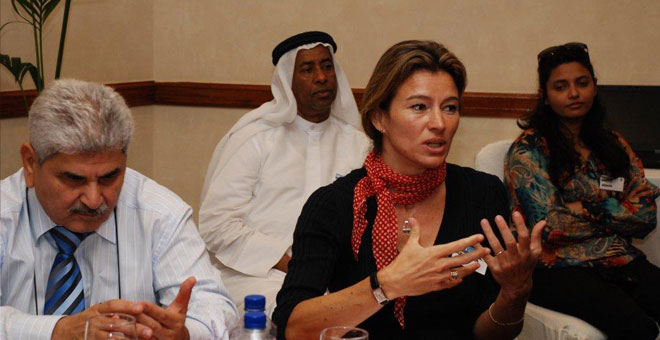

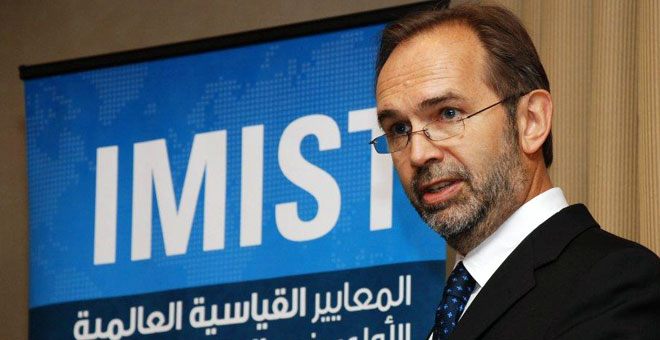
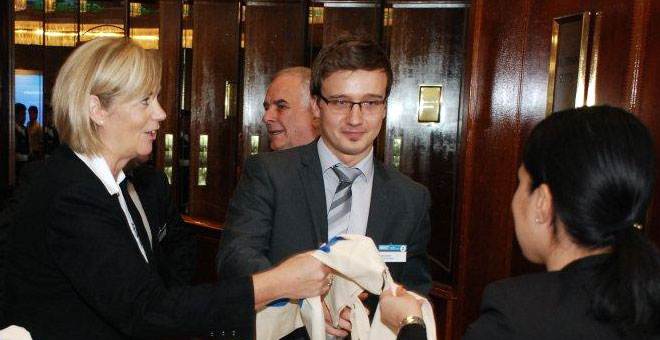
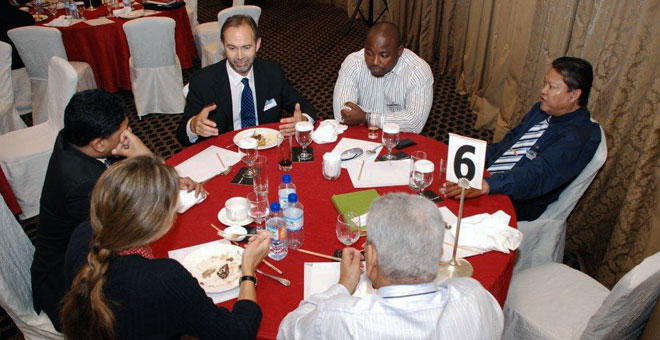


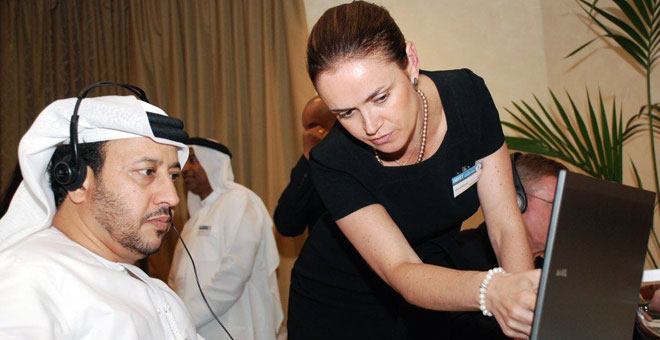
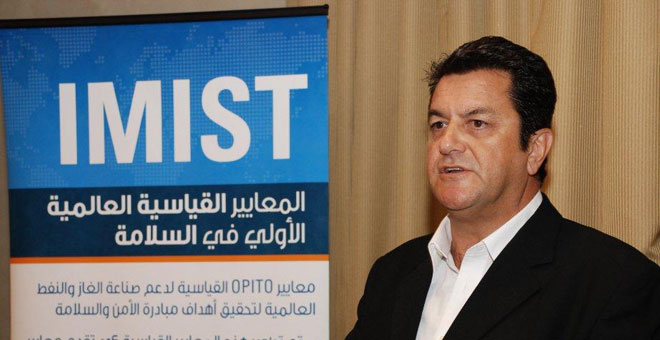


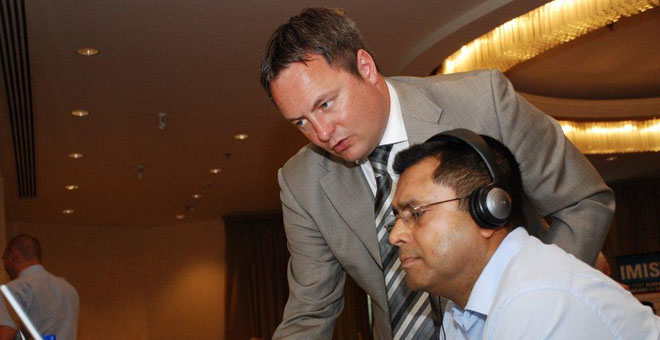
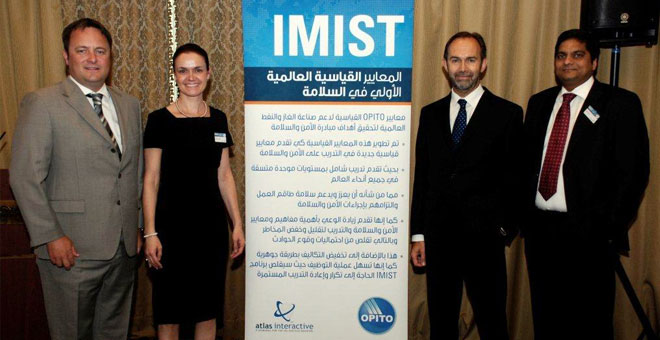


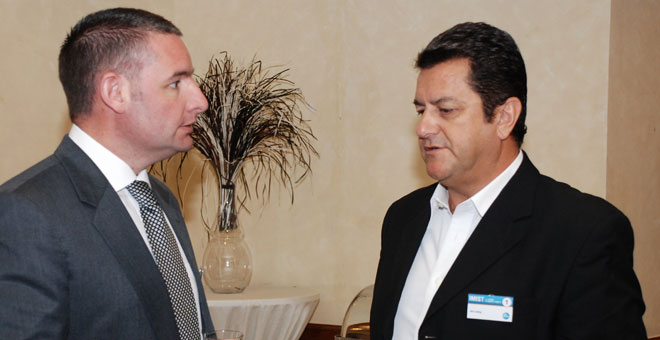
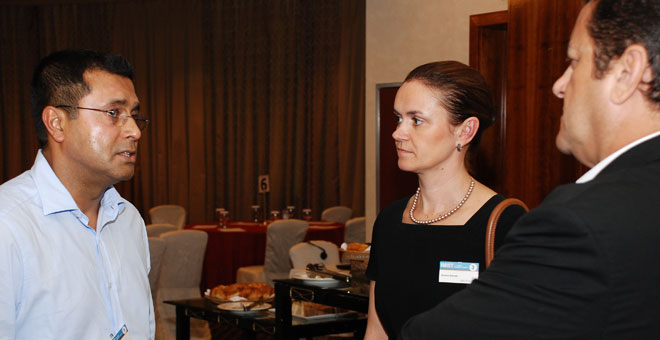
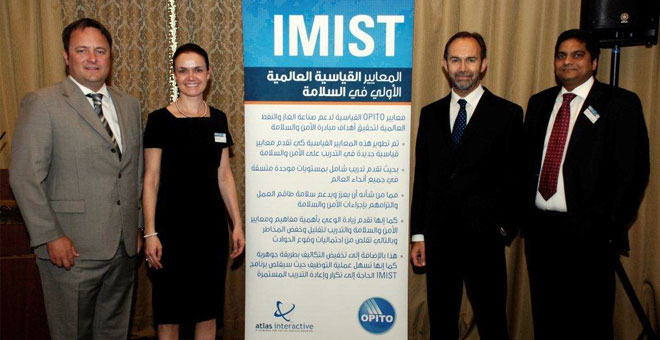
Oil and gas workers in the Middle East will today (July 17) be the first in the world to access a groundbreaking new global training initiative, developed to drastically improve safety standards for the global offshore workforce. More than 100 senior representatives from the leading National and International Oil Companies in the region will attend a series of briefings throughout the week to hear how the International Minimum Industry Training Standard (IMIST) will ensure workers have the necessary safety knowledge and training to understand and avoid hazards and risks. IMIST has been developed by global oil and gas training standards body OPITO International. It brings, for the first time, a standardised level of basic safety training to an estimated 1.5million people employed in exploration and production activities worldwide. Of those, around 460,000 are based in the Middle East. It will be delivered in partnership with international learning and skills provider Atlas Interactive via e-learning and tailored to meet each region’s specific workforce, language and geographic needs. “The tragedy that was Macondo has shaken the sector and put the spotlight firmly back on safety and workforce competence. While there is a level of knowledge and good practice within the existing workforce there is a clear desire in the industry for uniformity when it comes to the safety and competency of its people,” said David Doig, OPITO Group chief executive. “To date, delivery and content of basic safety and competency training has varied dramatically from region to region and lacks consistency. In an industry like ours where workers from any number of different companies and nationalities are working side by side, a common approach to training is the only way of striving to ensure that everyone can carry out their job to the same high standard and return home safely at the end of the day. “IMIST sets a new common standard to ensure that everyone, regardless of role or discipline, has the same basic safety understanding. It also addresses the industry’s drive to streamline its efficiency performance by removing the need to continually repeat and duplicate training which is prevalent in the myriad of best intentioned induction and safety programs.” IMIST will be applied to every member of the current workforce and all new entrants to the industry. The course assesses basic safety knowledge in nine subject areas including Risk Assessment, Asset Integrity, the Use of Hazardous Substances, Working at Height and Mechanical Lifting Activities among other subjects. “We recognise that adopting common industry standards and engaging the essential support to apply them uniformly across industry is a challenge, but there is a real prize out there,” added Doig. “Safety is paramount and the industry has a fundamental duty to make sure that its people are competent and trained to the best possible standards. Training people consistently to the same level will bring significant safety improvements but it is up to each individual company to implement the standards. “At an individual level, every worker should have confidence that their fellow worker has the same level of competence in the hazards and risks in the workplace and how they are best addressed.” OPITO is committed to improving safety and reducing risk for people, assets and companies in one of the most hazardous working environments. The organisation works with Governments, National Oil Companies, Multi-nationals and Contractors to provide independent advice and guidance on effective management of workforce skills development, emergency response and occupational standards and qualifications and quality assurance of training delivery. Its world class training network spans 30 countries with more than 200,000 people each year training to OPITO standards. To help employers manage the introduction of IMIST, an innovative and flexible approach to learning and assessment has been taken. This encompasses a two day initial classroom based course for all new entrants; and an e-learning Minimum Safety Reassessment and Refresher Program for existing workers to demonstrate knowledge of basic safety elements. John Rowley, Chief Executive Officer of Atlas Interactive said: “Each country has its own distinct needs and IMIST provides the platform for increasing the performance of the national workforce, whilst ensuring a standardised playing field in terms of safety and competency. “It has the potential to not only help individual businesses improve their own efficiency, but also the industry overall by enhancing the skills set of the transient workforce, making a significant contribution towards the creation of a safer workplace for all and providing a solid foundation from which to grow further in the future.” Today’s briefing will take place at Le Royal Meridien, Abu Dhabi, from 12-2pm. A second briefing will take place at the Sheraton Doha Resort and Convention Hotel in Doha on July 19. IMIST will be rolled out across 30 countries worldwide throughout Asia, Africa and the United States over the next two years.
OPITO and Atlas Interactive Achieve Significant Milestone in North Sea Oil and Gas Safety Training - June 2011
01/06/2011
OPITO and Atlas Interactive announced today that over half of the UK’s experienced offshore workforce has now taken up MIST, the industry-recognised basic safety training course. Atlas, the Aberdeen-headquartered learning and skills provider, has exceeded 50,000 licences, with over 800 UK oil and gas companies having now embraced OPITO’s UK standard for Minimum Industry Safety Training (MIST) since it was introduced in April 2009. John Rowley, CEO of Atlas Interactive, said: “We are delighted to have reached this milestone helping oil and gas workers in the UK achieve MIST certification. While this represents more than half of the experienced workforce, we continue to receive demand for MIST as employers in the UK Continental Shelf (UKCS) continue to firmly embrace the benefits of having their workforce trained to a common standard. “The innovative technology we developed to implement MIST has proved highly effective in meeting the industry’s needs. Not only is it helping to bring consistency to the industry’s safety training, it is also generating significant savings in terms of the time and money companies spend on this training.” Driven by the industry’s commitment to improve safety, MIST was introduced in the UK in April 2009 and continues to be rolled out across all disciplines of the oil and gas workforce with 47,192 experienced workers having completed the programme to date. Developed by Step Change in Safety and OPITO, it is being supported by industry for the entire UKCS sector to embrace this initiative to increase safety awareness for offshore workers, making MIST one of the most successful safety initiatives deployed in the North Sea. Atlas recently won the contract win to develop and deliver the international version of the programme and IMIST will be launched in the Middle East in July before being rolled out across global oil and gas provinces. David Doig, group chief executive of OPITO, said: “The success of MIST to date in the UK is testament to the continued commitment within the industry towards ensuring the highest possible safety standards among its workforce and provides the industry with a solid platform on which to build its skills base further in the future.” The course contains nine modules including topics like the Risk Assessment Process, Asset Integrity, Use of Hazardous Substances, Working at Height and Mechanical Lifting Activities. Training is undertaken via the internet, saving industry potential downtime and eliminating travel costs. The technology underpinning MIST is Atlas FAST TRACK. An award winning diagnostic tool which works by assessing a learner’s knowledge during a pre-assessment, under time bound conditions. The course is delivered to the learner based on their personal knowledge gaps and use of a process that rebuilds the course size each time based on incorrect responses. This ensures an ultimate pass mark of 100%. This approach has seen days of classroom based content cut down to two hours of e-learning which can be undertaken at any location at any time. The significant difference in the costs shows a return on investment for the industry of approximately £28.7million (GBP) to date.
Clearing the MIST around offshore safety - May 2011
01/05/2011
SAFETY has long been the watchword of the UK Oil and Gas Industry. As technology progresses, hydrocarbon reserves become harder to recover and the industry looks to new geographic markets each with their own challenges to overcome, the focus on safety training has increased. The UK industry, working through OPITO and Step Change in Safety, recognised that a key component to achieving a reduction in offshore hazards and incidents was to improve basic safety training for all personnel. The Minimum Industry Safety Training (MIST) programme was designed to accomplish this, offering standards-based content delivered consistently across the industry and focused on nine subject areas including Risk Assessment, Asset Integrity, Use of Hazardous Substances, Working at Height and Mechanical Lifting Activities among others. The MIST refresher course has now been running since its launch in April 2009 with more than 50,080 experienced offshore workers undergoing assessment and training. It is considered a resounding success for improving offshore safety and for demonstrating the considerable benefits of using e-learning for this type of application. But the road to success has not been without its challenges. As an industry-led scheme, uptake of MIST has not been driven by regulation and with a target population of approximately 50,000 workers from over 700 companies, adopting a standardised approach to health and safety refresher training was always going to be difficult. International learning and skills provider Atlas Interactive was tasked with designing and delivering a cost effective adaptive learning solution which would maximise the effectiveness and compliance of health and safety training for the offshore workforce. “In the past, courses of a similar complexity have been carried out in the classroom over two days, at a typical cost of around £300 per person,” said Atlas’ Chief Executive John Rowley. “Experienced workers had to go through the entire course content, with no account taken of their existing skills base or knowledge of the subject matter which, to them, was both time consuming and uninteresting. “It was vital that in developing the course, we not only helped the UK Offshore Industry meet its safety initiative targets but looked at the perceived barriers which may inhibit its uptake.” Among the key concerns was the sheer logistics of targeting a high volume of existing employees in multiple remote sites each of whom would require access to the system, as well as resistance from existing employees and employers to undertaking 14 hours of training in subjects that many will claim they are already familiar with. Resistance from experienced workers concerned about failing the course and not being permitted to travel offshore with implications on their employment contract was also an issue, along with ensuring that that there is consistency between the training course provided for new employees and the training course for experienced employees. By using an interactive e-learning model, Atlas developed the courseware to be deployed via the Internet, Intranet or, to cater for low bandwidth locations, via CD-ROM with results stored in a central database. The technology underpinning MIST is Atlas FAST TRACK™. A diagnostic tool which works by assessing a learner’s knowledge under time bound conditions. Based on the results of a pre-assessment, FAST TRACK dynamically selects the learning outcomes that are required to satisfy these gaps and rebuilds the course accordingly. “By utilising an iterative process that diagnoses the individual’s knowledge gaps and dynamically personalises the course for each participant, the pass mark can be set at 100% and we can ensure that the workforce has understood all of the topics covered,” said John. “This reduces 14 hours of classroom based content down to approximately two hours of e-learning content. Learners can take the course at any location - home, office or learning centre – at any time, therefore reducing the burden of travel time and associated costs.” Indeed, taking into account the difference in cost between the original classroom based solution, the difference in the costs shows a return on investment for the industry of approximately £28.7million (GBP) to date. To ensure flexibility, workers not currently employed are able to self-register while employers can also purchase blocks of licences for their staff. An integral component of the Atlas MIST solution is the gathering and reporting on course and learner data. This data gives a health check for the industry and the feedback is a key driver for continuous improvement of the system, the assessment and the content. “Significant time and effort was spent ensuring that feedback questionnaire was easy to complete, insightful and could be used for continuous improvement. The form is electronic, making it easier to extract the information and a monthly report is supplied to the industry displaying both the positive and negatives. “It is necessary to understand if there are any usability issues and to ensure that the content meets the required standard for the learners. Evaluation looks at learner demographics, training locations and course content.” Although this initiative is voluntary for organisations to participate, once they have decided it is a requirement for travelling offshore, the information about a worker's successful completion is stored on the Vantage system. Using the demographic data it becomes possible to demonstrate the composition of the North Sea offshore oil and gas sector - analysis of which is informative to the industry at large. It is anticipated that the entire UKCS Oil and Gas Industry will support the initiative to increase safety awareness for experienced offshore workers, making MIST one of the most successful safety initiatives deployed in the North Sea. David Binnie, managing director of OPITO the global skills body behind MIST, said: “The biggest benefit is a safer workforce and ultimately a safer workplace. Supplementary to this is the reduced costs, more consistent, effective and transferable training and a single central, quality assured, verification that personnel that have been trained to the MIST requirements. “Indeed the success of MIST to date in the UK is testament to the continued commitment within the industry towards ensuring the highest possible safety standards among its workforce.” OPITO is delighted to announce that International MIST is currently under development in partnership with Atlas Interactive and will be ready for deployment to the global oil and gas industry this summer. For further information on International MIST contact info@atlasinteractive.com
Atlas wins major multi-million dollar contract to deliver common standard to improve global offshore safety - April 2011
01/04/2011
International learning and skills provider, Atlas Interactive, has been awarded a major contract to develop and deliver new standardised safety training to the global oil and gas industry in a deal which is expected to deliver revenues upwards of $5 million over the first year. Delivered in partnership with OPITO, the skills body which ensures safety and competency in the worldwide Oil and Gas Industry, the agreement will offer Atlas the opportunity to train in excess of 1.5million direct workers in E&P to undertake International Minimum Industry Training Standards (IMIST) over the next two years. This global version of the MIST programme which OPITO and Atlas have successfully piloted with over 48,000 UK oil and gas workers since 2009, is now being developed to standardise safety training for experienced workers in oil and gas provinces around the world. IMIST will be launched in the Middle East in July, then rolled out across 30 countries worldwide throughout Asia, Africa and the United States. It will be delivered via e-learning and tailored to meet each region's specific workforce, language and geographic needs. The contract, which begins this month, supports an aggressive growth strategy for Atlas, which sees this deal as part of a strategic plan to double sales over the next three years. Atlas Chief Executive John Rowley said: “This is a groundbreaking initiative in terms of the importance the industry is placing on health and safety. We are delighted to have been chosen to deliver the IMIST programme, following a competitive tender process, for this global workforce and believe this is a clear indication of the industry's commitment to standardisation and their willingness to embrace new technologies which can create a highly effective and efficient solution. “For Atlas, this agreement will allow us to pursue our ambitious growth strategy in terms of penetration of the international oil and gas market, particularly in the emerging markets where Atlas has already secured some exciting new projects with National and International Oil Companies. The IMIST standard ensures that trainees have the necessary safety awareness and training to avoid risk and ultimately incidents. The course contains nine modules incorporating Safety Observation Systems, Use of Hazardous Substances, Working at Height and Mechanical Lifting Activities. Training is undertaken via the internet and underpinned by Atlas' award winning innovative diagnostic tool called FAST TRACK which works by assessing a learner's knowledge gaps under time-bound conditions. The content of the course that is then delivered to the learner is based on their personal knowledge gaps - saving time by only delivering the training that is required and ensuring 100% competency. This reduces 14 hours of classroom-based content down to approximately two hours of e-learning content. OPITO, which developed the IMIST course, aims to deliver common standards in the global oil and gas workforce that improve safety and competency. The international organisation works with Governments, National Oil Companies, Multi-nationals and Contractors to meet their skills needs to provide independent advice and guidance on effective management of workforce skills development, emergency response and occupational standards, qualifications and quality assurance of training delivery. David Doig, CEO of OPITO Group, said: “The delivery and content of basic safety training varies dramatically from region to region and lacks consistency across the industry. Oil and gas workers should have confidence that their colleagues share the same level of safety training and the ultimate aim of IMIST is to make the working environment safer. “Following a rigorous selection process we are delighted that Atlas Interactive will be developing and delivering the e-learning provision for the experienced worker programme. Their technical expertise, knowledge of the oil and gas business and successful track record has proven invaluable in the development of the high quality safety training package for the industry.” Atlas Interactive, which secured private equity investment from HG Capital in 2007, has reported a highly successful twelve months with its industry-recognised safety training underpinning the scope of its e-learning specialist's capabilities within the oil and gas sector. Founded in 1995, Atlas provides innovative and interactive e-learning courses that deliver accelerated skills development and knowledge transfer to the global Oil and Gas Industry. Over 350,000 people in over 600 companies, across 35 countries and 20 different languages are currently benefiting from the e-learning training provided by Atlas. The company now employs 68 people and is based at Offshore House, Science and Energy Park, Aberdeen, with offices in the Middle East, Asia and the Americas. EVENTS
2
Mar
2017
Cape Town, South Africa:
Atlas Partnership Development Africa - South Africa
We are very excited to be making our way across the globe to meet with our valued partners in Africa. This workshop will demonstrate all the benefits that being an Atlas partner involves, the importance of networking as well as sharing our knowledge on the worldwide safety training industry. If you are interested in attending please contact lesleywallace@atlasknowledge.com
Back to the top
28
Feb
2017
Accra, Ghana:
Partnership Development Africa - Ghana
We are very excited to be making our way across the globe to meet with our valued partners in Africa. This workshop will demonstrate all the benefits that being an Atlas partner involves, the importance of networking as well as sharing our knowledge on the worldwide safety training industry. If you are interested in attending please contact leselywallace@atlasknowledge.com
Back to the top
24
Feb
2013
Shangri-La Hotel, Dubai.:
Dubai IMIST information sessions
Atlas and OPITO are hosting a briefing on the value of the International Minimum Industry Safety Training (IMIST) program. There will be two information sessions on February 24th at the Shangri-La Hotel in Dubai:
· Lunch & Presentation from 12.30 to 14.30 This is a must attend event for decision makers in Health, Safety and Environment, Loss Prevention, Operations, Learning and Development. Please reply stating the session you would like to attend to info@IMIST-Online.com We look forward to meeting you at one of these events! Back to the top
20
Feb
2013
Beach Rotana Hotel, Abu Dhabi.:
ADNOC IMIST Lunch and Learn
Atlas and OPITO International are hosting an "ADNOC Lunch and Learn" on the 20th February from 11.00 am at the Beach Rotana Hotel in Abu Dhabi. We hope you can join us and learn more about the standard and the advantages on safety from OPITO and then sharing of perspectives by Borouge and Total on the IMIST Standard.
You can confirm you attendence or find out more by contacting us at info@into-imist@atlasknowledge.com Back to the top
20
Nov
2012
Middle East / Abu Dhabi:
3rd OPITO Safety and Competence Conference
IMIST showcasing at 3rd OPITO Safety and Competence Conference in Abu Dhabi Back to the top
30
Apr
2012
Houston:
Offshore Technology Conference in Houston
Atlas is exhibiting at the Offshore Technology Conference in Houston, one of the industry's most foremost events, which takes place on 30th April to 3rd May 2012 Back to the top Back to the top
14
Feb
2012
North America/Houston:
North America/Houston Information Lunch
North America/Houston Information Lunch Back to the top
22
Nov
2011
Middle East / Abu Dhabi:
OPITO Safety and Competence Conference
IMIST showcased at 2nd OPITO Safety and Competence Conference in Abu Dhabi Back to the top Back to the top
17
Jul
2011
Middle East / Abu Dhabi:
Middle East Information Lunch
Middle East IMIST Information Lunch Back to the top |
Other Recent News
PRESS CONTACTThomas Kennedy |

